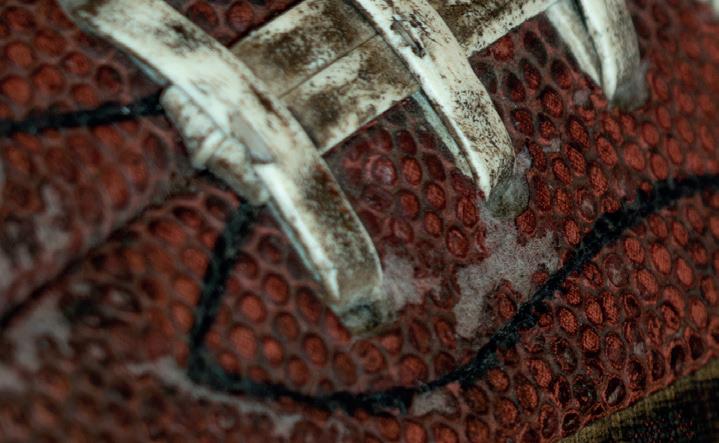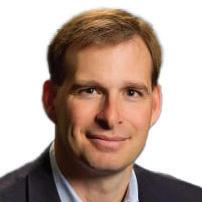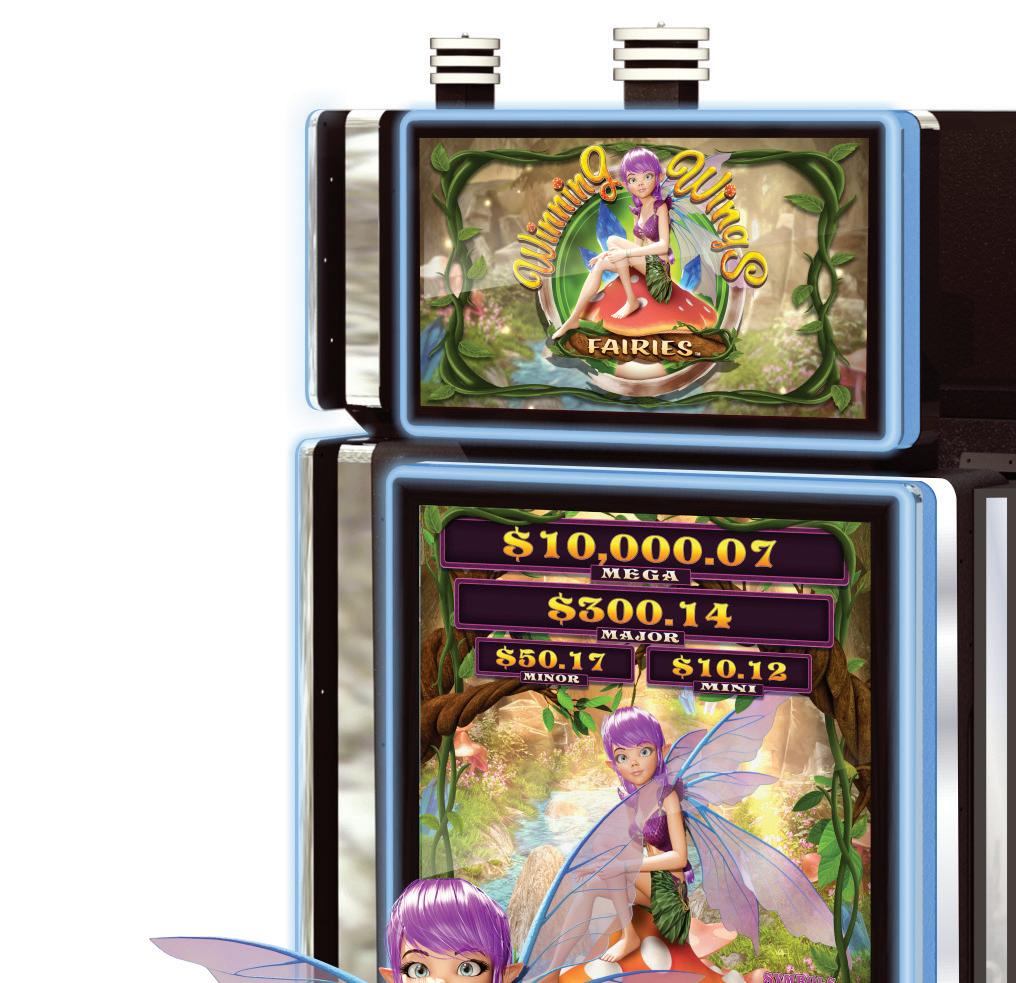TRIBAL GAMING
How much of a sustainable growth method can sports betting provide for Tribal gaming operators?







GA HUDDLE: Hard Rock's Paul Pellizzari discusses the operator's humanitarian efforts
NIGC: We are joined by organization Chairman E. Sequoyah Simermeyer
Dedicated coverage of gaming in the Americas Mar/Apr 2023
TRIBAL FOCUS: What's on the agenda for Tribes and their partners in 2023?


COO, EDITOR IN CHIEF
Julian Perry
STAFF WRITERS
Robert Collins
Robert.Collins@gamingamerica.com

Ricky Gray Jr.
Ricky.Gray@gamingamerica.com
LEAD DESIGNER
Brendan Morrell






DESIGNERS
Olesya Adamska, Christian Quiling
DESIGN ASSISTANTS
Radostina Mihaylova, Svetlana Stoyanova, Gabriela Baleva
MARKETING & EVENTS MANAGER
Mariya Savova
PRODUCTION ASSISTANT
Sophie Blocksidge
FINANCE AND ADMINISTRATION ASSISTANT
Julia Olivan
IT MANAGER
Tom Powling
COMMERCIAL DIRECTOR
Deepak Malkani

Deepak.Malkani@gamblinginsider.com
Tel: +44 (0)20 7729 6279
US BUSINESS DEVELOPMENT MANAGER
Aaron Harvey
Aaron.Harvey@playerspublishing.com

Tel: +1 702 425 7818


ADVERTISING SALES EXECUTIVE
Ariel Greenberg
Ariel.Greenberg@playerspublishing.com

Tel: +1.702 833 9581
SENIOR ACCOUNT MANAGER
Michael Juqula
Michael.Juqula@gamblinginsider.com
Tel: +44 (0)20 3487 0498
ACCOUNT MANAGERS
William Aderele
William.Aderele@gamblinginsider.com
Tel: +44 (0)20 7739 2062
Irina Litvinova
Irina.Litvinova@gamblinginsider.com
Tel: +44 207 613 5863
Maya Lakhenpaul
Maya.Lakhenpaul@gamblinginsider.com
Tel: + 44 207 739 9918
Martin O'Shea
Martin.Oshea@gamblinginsider.com
Tel: +44 (0) 207 729 0643
BUSINESS DEVELOPMENT MANAGER
Michelle Pugh
Michelle.Pugh@gamblinginsider.com
Tel: +44 (0)20 7739 5768
CREDIT MANAGER
Rachel Voit
WITH THANKS TO:
With thanks to: Paul Pellizzari, Siobhan Lane, Will Armitage, Stephen Crystal, Tim Minard, Mike Vela, Brian Christopher, Josh Duffy, Brad Bryant, Matt Hosman, E Sequoyah Simermeyer, Keith Whyte, Tomer Imber, Simon Hammon, Brett Abarbanel, Kevin Dennis, Omer Sattar, James Lewis, Kristine Marsilio, Troy Ross, Declan Raines, Philip Bell, John Connelly
Gaming America magazine
ISSN 2632-766X

Produced and published by Players Publishing Ltd
EDITOR’S LETTER


































 JULIAN PERRY, COO, Editor-in-Chief
JULIAN PERRY, COO, Editor-in-Chief


As we look ahead to another industry union in California, for the Indian Gaming Association tradeshow, we invite you to read all about the latest Tribal topics in this March/April issue of Gaming America magazine. Our cover theme addresses whether sports betting is a sustainable method of growth for Tribes across the US, while we also welcome contributions from the National Indian Gaming Commission and address all things Tribal in our traditional Viewpoints feature.
Elsewhere, we take a close look at the American Gaming Association's commercial state tracker, which broke down how much revenue was made across different US states; additionally, we review our US-facing Huddle video interviews at ICE London. At the show, we had the privilege of being joined by Light & Wonder Gaming CEO Siobhan Lane, Stephen Crystal and Will Armitage to discuss all things US betting, while we also spoke to Hard Rock's Paul Pellizzari about the Tribal operator's anti-human-trafficking strategies. Further illuminating interviewees present themselves in the form of Eclipse Gaming CEO Tim Minard, who further delves into the Tribal market, as well as Mike Vela, who discusses the intersection between esports and daily fantasy sports. Meanwhile, Chris Wieners writes a very informative article on the differences between US and Asian gaming, while Keith Whyte of the National Problem Gambling Council joins us for a Q&A.
Completing a jam-packed edition are updates on Fanatics, the much-anticipated sports betting would-be giant, Optimove debunking responsible gambling myths, Sightline discussing cashless and the Innovation Group reviewing Canada's progress so far. If that isn't enough for you, there's also Declan Raines, Brett Abarbanel, Philip Bell and more. Enjoy!
Editor-in-Chief Julian Perry
FEATURED IN THIS ISSUE
All material is strictly copyrighted and all rights reserved. Reproduction without permission is forbidden. Every care is taken in compiling the contents of Gambling Insider but we assume no responsibility for the e ects arising therefrom. The views expressed are not necessarily those of the publisher.
CHECK OUT GAMINGAMERICA.COM FOR THE BEST IN BREAKING NEWS
OMER SATTAR Co-CEO Sightline Payments
PAUL PELLIZZARI VP of Global Social Responsibility Hard Rock

18
08
FROM THE TOP
Gaming America takes a deep dive into the AGA’s Commercial Revenue Tracker, which shows that, for US commercial gaming, breaking records has become a habit.
12
SKYROCKETING STATES
The AGA’s Commercial Revenue Tracker revealed little of interest regarding the highest-earning states in 2022. However, there were some surprises on the list of fastest growers – Gaming America takes a closer look.
14
GA HUDDLE: HARD ROCK
Gaming America sits down with Hard Rock VP of Global Social Responsibility, Paul Pelizzari, to discuss how the operator tackles ESG issues, focusing on anti-human-trafficking efforts.
18
24
ICE HUDDLE REVIEW
Siobhan Lane, Will Armitage and Stephen Crystal speak to the Huddle at ICE London.
ECLIPSING THE CLASS II SLOTS MARKET
Eclipse Gaming Systems CEO Tim Minard talks Tribal partnerships, slot influencers and how machine manufacturers can step up their game.
28
MEETING IN THE MIDDLE
Gaming America speaks to World Champion Fantasy CEO Mike Vela about his proposed hybrid evolution of esports and fantasy sports leagues.
32
SOME LIKE IT SLOT
Gaming America delves into the world of slot media influencers, talking to two of the biggest names in this niche sector – BC Slots Founder Brian Christopher and Slotaholic Founder Josh Duffy.
36
SPORTS BETTING: A SUSTAINABLE SOURCE OF TRIBAL GROWTH?
Executives from Kambi and Mohegan Sun help Gaming America analyze whether sports wagering can provide a long-term strategy for Tribal operators.
42
JACKPOT: WAY OF THE DRAGONLINK
Chris Wieners makes a comparative overview of the slot machine industries in Asia and the US.

44
GAMING INDUSTRY GROUP
James Lewis and Kristine Marsilio, Associates specializing in gaming law at Duane Morris LLP, consider reducing and eliminating promotional play to increase tax revenues.

46
IGRA: 35 YEARS
E. Sequoyah Simermeyer outlines the sovereignty and flexibility that IGRA and NIGC regulations have provided to Tribes, and what the future holds.
6 | GAMINGAMERICA GAMING AMERICA | CONTENTS
20 Stephen Crystal
Siobhan Lane
50 THE BIRTH OF FANATICS BETTING & GAMING
Beginning as a merchandiser of licensed sports apparel, Gaming America reflects on Fanatics’ unique entry into the sports betting market.
54

NCPG Q&A: THE FAILING STATES
Gaming America once again took the time to speak with the NCPG’s Keith Whyte, who highlights the states failing to meet the minimum standards for responsible gambling – and the challenges faced by sports betting.
56 THINK YOU KNOW RG? THINK AGAIN
Tomer Imber, Optimove Senior Director of Sales, debunks five responsible gambling myths.


58
UNDERSTANDING THE BUSINESS NEEDS OF US OPERATORS
Relax Gaming CEO Simon Hammon discusses the casino supplier’s ambitions in the US.
60 GOING FOR GOLD
Gaming America speaks to Brett Abarbanel as she prepares for the 18th International Conference on Gambling & Risk Taking.



64 WHAT THE APP?
Omer Sattar, Co-CEO of Sightline Payments, says cashless and omnichannel experiences will unite the digital and physical worlds of gaming.
66 CANADA: WHAT'S NEXT?
Kevin Dennis, The Innovation Group SVP Canada, discusses how the opening of the Ontarian iGaming market has changed the landscape of Canadian gaming and led to ‘one of the most commercially attractive markets in the world.’
70 TRIBAL FOCUS
For Gaming America’s Tribal special, we sit down with Interblock Global CEO John Connelly to discuss the importance of commercial-Tribal partnerships – among other trends.
72 Q&A: QIH GROUP

Philip Bell of affiliate QIH Group talks Gaming America through the latest trends in the US affiliate market, as well as the company’s strategy in crucial ‘battleground’ states like New Jersey, Pennsylvania and Michigan.
74 SPORTSBOOK RETENTION
Declan Raines, Head of US Gaming at TransUnion, discusses how best to retain customers.
78 PRODUCT REVIEWS
We take a detailed look at some of the newest products livening up the consumer experience, as well as the architects behind some of the gambling industry’s most iconic brick-and-mortar venues.

GAMINGAMERICA | 7 CONTENTS | GAMING AMERICA
32 Brian Christopher
60 Brett Abarbanel
FROM THE TOP: COMMERCIAL GAMING IN 2023








Gaming America takes a deep dive into the AGA’s Commercial Revenue Tracker, which shows that, for US commercial gaming, breaking records has become a habit.

The American Gaming Association (AGA) recently issued a report that tells us a great deal about the state of US gaming, namely that it is still charted on a course for exponential growth. The $60.4bn in collective revenue for commercial operators was a record for the country and this figure does not even account for Tribal gaming, an integral part of the industry.
With Tribal revenue included, total yearly gambling revenue for the US will likely eclipse the $100bn mark for the first time. This is a demonstration of the might of an industry that is still growing; despite its patchwork frame of legality (differing drastically state-by-state), it is now akin to the US beer industry (which posted revenue of $100.2bn).
Unlike the US beer industry, though, the gambling industry is still fledgling

and has many routes to continue its cumulative growth: a path that seems inevitable now. It is genuinely hard to pinpoint a market for gambling more exciting than that of North America.
ANALYZE THIS



While some may see these figures and say the balance of power between the betting verticals is shifting, one thing is for certain: land-based remains supreme. Casino slots and table games made up 79% of total gross gaming revenue (GGR), raking in $47.8bn. However, one must compare this to 2016, when land-based casinos accounted for almost 100% of total GGR and even to 2021, when it took an 85% GGR share from all verticals. Sports betting and iGaming both
produced record-breaking results, receiving 12.4% and 8.3% shares in total GGR for 2022 respectively. This trend of land-based losing ground to these two verticals will be interesting to follow – especially as more states launch sports betting and iGaming. The fact that iGaming took a double-digit percentage while only being active in six states is an impressive stat and a sign of how seriously this vertical should be taken.








But the lay of the land still remains the same: with land-based casinos fuelling the industry. In 2022, 14 of the top 20 commercial casino gaming markets posted revenue growth compared to the previous year. Following a turbulent two years of (almost every) market falling and rising due to the pandemic and even post-pandemic restrictions, it seems

8 | GAMINGAMERICA GAMING AMERICA | FROM THE TOP

2022 was the year when things ‘stabilized’ for the dominant land-based gaming states.
BRICK-AND-MORTAR REFUSES TO CRUMBLE
To no one’s surprise, Nevada and New Jersey topped the rankings for the top-revenue -producing states in regard to GGR. The Las Vegas Strip alone produced $8.2bn in revenue, a 17% yearly increase that dwarfed its closest competitor – Atlantic City – by $5.5bn. Atlantic City’s return of $2.8bn still signified an impressive 8.5% annual rise.
and a reversal of a trend set during the pandemic years when (understandably) the slot and table game sectors saw declines. Comparing these two verticals’ revenues to 2019 would perhaps be a more apt way to sort through the data: they both accelerated in 2022 at an almost identical rate, with slot revenue rising by 15.7% and table game revenue increasing by 15.1%.
SPORTS BETTING SCORES BIG
Of all US gaming verticals, sports betting increased at the most rapid rate, with Kansas, Maine and Massachusetts all legalizing the practice in 2022. Sportsbooks and betting fans were perhaps most excited about Massachusetts, with The Bay State being home to some of the nation’s most famous sporting teams, such as the Boston Red Sox and the Boston Celtics. It was great timing for Kansas, too, with the launch of sports betting in September 2022 coinciding with the Kansas City Chiefs' successful run in the NFL, which culminated in the team winning the Super Bowl LVII in dramatic fashion when pitted against the Philadelphia Eagles.
taking a nationwide perspective may be the wrong way to approach this data. A different picture is painted when we break the numbers down on a state level and see that the combined share of online sports betting and iGaming, in states that offer full online gaming options, was 40.7%. The legalization process of gaming in the US is tough to predict in exact terms, but one thing can be ascertained for sure – the market will only continue to open, and as it does so that 19.5% figure may climb dramatically.
IGAMING: IS ONLINE THE FUTURE?
Of the six markets to produce negative year-over-year results, Philadelphia was one of the more noticeable names in that clique. Home to Hollywood Casino at Penn National, Harrah’s Philadelphia Casino & Racetrack and Valley Forge Casino Resort, Pennsylvania is a traditionally strong market for land-based gaming. Its 1.8% annual drop meant that it retained its placement at number seven in the rankings, just below the (potentially) gargantuan market of New York City. NYC may well only remain outside the top five due to its 25% tax rate acting as an effective deterrent for all but the largest gambling operators.
Slot revenue saw a 5.1% year-over-year increase, while table revenue rose 13.9%, which may seem trifling when compared to sports betting’s meteoric 73% increase. However, it was still a defiant showing from the brick-and-mortar industry
The AGA also produced interesting stats regarding the distribution of sports betting revenue state-by-state. New York State claimed $1.3bn in GGR, with mobile sports betting having only launched on January 8, 2022, which was a demonstration of what many experts predicted; that The Empire State, with its storied sporting history and teams, would have a ravenous appetite for sports betting. New York was followed by old favorites such as New Jersey (in third place with $763m), Pennsylvania with $597m, Virginia with $481m and Illinois taking second spot with $795m. This meant New York was the only state to break the $1bn mark.
In-person sports betting remained the backbone of the vertical, although mobile sports betting jumped up to make 19.5% of the total revenue achieved, a 4.5% yearly increase. The portion of overall US gaming revenue derived from online platforms remained low in comparison to other major international markets such as the UK (65%) France (29%) and Germany (28%). However,
When taking a quick glance at the AGA’s chart graphing GGR, iGaming only truly became visible in 2021, when it took 7% of the overall market. In 2022, this rose to 8.3% and although this is hardly as eye-catching a figure as the numbers produced by traditional gaming or sports betting, it is still a defiantly solid performance. One must take into account that iGaming was only legal in six states when AGA recorded these results and that the industry itself grew by 35.2% annually. It rose an impressive 28.2% to hit $1.4bn in Q4 of 2022, with New Jersey and Pennsylvania proving to be its most popular hunting grounds.
IGaming operators have begun to take the North American market very seriously as the demand for it has been crystalized by increasingly solid results in the states where it is legal (New Jersey, West Virginia, Michigan, Delaware, Pennsylvania and Connecticut). For example, Aruze Gaming, best known as a table games provider, has turned its attention to iGaming, stating that it will be a key focus for 2023. Aruze Gaming America gained approval to offer its iGaming Cloud platform to Pennsylvania, making it the second market (after Nevada) to do so.
If iGaming is taking 8.3% of the overall market compared to sports betting’s 12.4% share, while being operational in less than one fifth of the states sports betting is live in, one could fairly surmise it has a bright future. Looking at AGA’s 2023 report entire, the same can be said for US gambling as a whole.
10 | GAMINGAMERICA GAMING AMERICA | FROM THE TOP
"WITH TRIBAL GAMING REVENUE INCLUDED, TOTAL YEARLY GAMBLING REVENUE FOR THE US WILL LIKELY ECLIPSE THE $100BN MARK FOR THE FIRST TIME."

STATE OF PLAY














































OREGON
rise in gaming revenue is not to be shrugged off. Sports betting has been legal in the state since 2019 and it rose 59% annually to hit $498m in 2022; an extremely impressive number for a state lacking in major sports teams. IGT got in the action last October, inking a VLT deal with the Oregon Lottery.

WYOMING

rise in annual gaming revenue should tell industry observers all they need to know. Wyoming is a fledgling state when it comes to sports betting, having only legalized the practice in September 2021; however, it still produced an impressive inaugural handle of $144.5m (high, considering the state’s low population).
ARIZONA






annual increase in gaming revenue. The Copper State reported a sports betting handle of $617m for November – the first back-to-back months of $600m+ revenue since sports betting was launched in September 2021. BetMGM made a move in the state, teaming up with the NFL’s Arizona Cardinals to open a sportsbook at its State Farm Stadium.









































































GAMING AMERICA | STATE REVENUES 12 | GAMINGAMERICA
MT WA CA NV UT WY OR AZ CO NM AK HI ID
AGA’s




NEW HAMPSHIRE
The Granite State reporting a rise in revenue for 2022. Total online gross gaming exceeded $9.9bn for the calendar year, with $5.4bn of that coming in the second half of the year; sure signs of a burgeoning market.















































































































CONNECTICUT
Connecticut’s jump still catches the eye and is the highest percentage increase in gaming revenue for any state. It reported its first $1bn+ sports betting handle ever in December, and saw new iGaming operators and suppliers launch in the state; big names such as Evolution, for instance, in July.





























nnual incline in revenue shows that they should not be dismissed so easily. The Volunteer State ranked among the top 10 sports betting states in the US in December 2022, reporting a sports handle of $440.4m.



STATE REVENUES | GAMING AMERICA GAMINGAMERICA | 13
ND SD MN WI IA NE MO IL IN OH WV VA NC SC GA FL AL MS LA OK KS TX AR KY TN VT NH ME MI MA NY PA
commercial revenue tracker for 2022 held few surprises in terms of the biggest revenue earners state-by-state. Nevada, of course, led the pack with New Jersey its closest rival. But a more interesting stat for Gaming America to investigate is the highest percentage change in revenues – the fastest-growing states, in other words. Let’s take a look at the (sometimes surprising) names that made it onto this list.
TENNESSEE
PUSHING SOCIAL RESPONSIBILITY

Gaming America sits down with Hard Rock VP of Global Social Responsibility


Paul Pellizzari to discuss how the operator tackles ESG issues, including its anti-human-trafficking efforts.
Can you tell us about your day-to-day role and the company’s overall approach to social responsibility?

I have a very exciting job where I get to serve all of our business verticals, which are cafes, hotels and casinos globally. I get to work with a great team here and I personally lead three operational programs. One is responsible gambling, which we call PlayersEdge; our environmental sustainability program Save the Planet; and our anti-human trafficking initiatives, which involve both operational programs and lots of public engagement.
We’re speaking about social governance, which includes things like diversity, equality and inclusion, as well. These concepts are becoming more and more important, and perhaps not in a cynical way. Companies are seeing that share prices are affected by this; investors are now more interested in these kinds of things. How does it impact Hard Rock’s overall strategies? How much of a part do you play in driving social responsibility and what are you working on?
It is an increasing part of who we are and what people are seeking. The important thing that’s going on now is that you have guests, the people we serve, our employees, the markets and development partners – they all want to know who we are. And you can’t fake it anymore, not that we ever did, but what we’re seeing is a lot of attention to greenwashing and woke-washing. That’s never been who we are, and you need
to have proof points. So we’ve also invested heavily in diversity, equity and inclusion. In fact, my boss is our Chief Diversity Officer. I think the critical thing for this moment is not just doing the good things; it’s how you do them. That can measure impacts and outcomes and where you’re really integrating these philosophies into a guest's experience, plus the experience that our team members have. Those are really our areas of focus, whether it’s environmental sustainability or human trafficking or diversity, equity, inclusion or philanthropy.
In terms of your campaigns and the projects you’re working on, which ones are at the front of your mind and at the top of the list for Hard Rock right now?
They all are. But I think at this moment,

14 | GAMINGAMERICA GAMING AMERICA | THE HUDDLE
"TAKING THE DISCOMFORT OUT OF IT AND TURNING THAT INTO ACTION, THAT’S A KEY THING."
the full video online
PAUL PELLIZZARI VP of Global Social Responsibility, Hard Rock
Watch

given that we’re talking during Anti-Human Trafficking Awareness Month – and that’s a program that’s been introduced over the last couple of years – this is a critical priority for us. At the moment, this is an issue that’s going on globally, certainly here in the US. Everyone is more aware of it and I think it’s getting more attention, which is great for our industry. The important thing for us is to acknowledge that it’s an issue that hits the whole hospitality industry, particularly hotels and casinos. We have a role to play and we need to define that role; we need to partner with the right organizations to help protect our guests and safeguard them, and also to bring awareness to the issue and try to help prevent it. Those are some of the things that have been really top of mind and taking a lot of my time.
You mentioned that the hospitality industry is more widely affected by human trafficking and the American Gaming Association recently released a report on this. In terms of gambling companies and hotels, how much of an issue is this?






For hotels, casino operators and brands, it is a big issue. There’s always a chance that someone will try to use your property to apply this horrible trade; that’s just a reality. No company is exempt from it, but I’m glad you mentioned the American Gaming Association (AGA): I actually sit on the task force for anti-human trafficking with the AGA which is led by Alex Costello, who’s doing a great job.
The first thing we do is identify and acknowledge that any company is at risk. But then what can we do to help prevent mitigate this risk? Just this month (January), we’ve launched our Human Trafficking Awareness Month app in the US with a QR code sticker. One level of prevention we’re implementing is making two-by-two-inch stickers and stockpiling them at four of our hotels and casinos. This sticker is for potential victims who are on-site, so it shows that direct support for victims needs to be a bigger priority for the industry. We’re putting them in places like
washrooms, elevator areas and parking garages. These are places where, if a victim was on the property and they were to see this, they’d be able to swipe their phone and they then can get help immediately from local law enforcement.
We’re piloting this at our New York hotel, our Cincinnati Casino, our Hollywood Guitar Hotel Casino in Florida, as well as in Madrid. Then, we're planning to roll this out across all of our hotel and casino properties. That’s one example of how we can provide direct support to victims who may be on our properties. You can see the element of discretion and urgency in the QR code. So that’s a specific example in terms of the industry and gambling companies.
Overall, what more can be done in this area to raise awareness? Which areas can you look to improve upon in 2023 and beyond?
We have to improve our ability to deal with it in operations – and that means engaging team members. So with training, we have a core half-hour training session that applies to all casino and hotel members. We reinforce that with videos throughout the year that are short – maybe 2-3 minutes long – but hit the main points. We want
our team members to recognize potential signs that trafficking is occurring on the property so they know what to do.
If that’s the case, security will determine whether to call law enforcement, so there’s that awareness. Then there’s actually taking a very uncomfortable issue and letting our team members know we can do something about it.

So taking the discomfort out of it and turning that into action, that’s a key thing. We also can work on prevention. At Hard Rock, we had a very successful program in 2022 called the Social Identity Quest, which was an education module for high school students. We partnered with ECPAT-USA to create this education module that was adopted by high school teachers across the US. This program is trying to prevent online luring, as traffickers are increasingly trying to lure vulnerable youth online. It’s about how to keep yourself safe and we did it in a highly engaging way. We saw 1.2 million high school students in the US complete this curriculum. The program is between half an hour to an hour and a half, depending on how the teacher wants to teach it.
Through the program, we saw online safety literacy increase by 13%, so that kind of prevention effort is equally critical to try to mitigate the issue on our properties. It demonstrates the wide scope of the problem wherein a guest goes into a hotel and thinks – what’s at the top of their agenda? Is it the casino tables, how clean the rooms are? Issues like this are maybe not the first thing you think of, but it’s always a risk; a big, widereaching problem. Obviously, everyone in our industry invests heavily in guest experience. We want our guests to have a great time. We want them to feel good and one of the things we need to get right when we’re dealing with these issues is creating effective guest-facing communication. If they’re going to see communications from us, the tone has to be right but we still have to get the point across. As an industry, we need to have the maturity to say this is an issue and we’re doing something about it. That’s more important to me than the discomfort of not addressing it at all. We’re shining more of a light on that.
16 | GAMINGAMERICA GAMING AMERICA | THE HUDDLE

SEEING THE LIGHT




Light & Wonder Gaming CEO Siobhan Lane speaks to Gaming America’s Tim Poole for a Huddle video interview at ICE London 2023.
At ICE London, we turned our N1 stand into a live video interview studio, where some of the industry’s biggest and most influential CEOs, executives and consultants took part in Huddle Q&As. Light & Wonder Gaming CEO Siobhan Lane joined us to reflect on the supplier's Retail Supplier of the year win at the Global Gaming Awards, the business’ transformation and much more.
Hello, viewers. Tim Poole here with Siobhan Lane, Light & Wonder Gaming CEO. We’re especially pleased to have you on because you were part of Gambling Insider magazine’s CEO Special. Could you talk us through what it was like to take part in that interview?

It was a great experience. Thank you for the opportunity. It was such a great platform to talk about all the changes and transformation that are happening at Light & Wonder, previously Scientific Games, and really focus on what we’re trying to do for our creators; and, of course, building great products and services for customers. There are a lot of exciting things going on, so we’re happy to have a platform like that.
That’s our pleasure. I’m going to ask a little bit more about those transformations and the rebrand later on. But first, as you know, I love the quote you shared in the interview, where you said your job is to enable your team’s superpowers. I wanted to hear more about that because we thought that was a great thing for a CEO in the gaming industry to say.


I love that idea. I’m really passionate about building great teams. I think the greatest teams







are diverse teams – they’re really complimentary – so all of us have a superpower, and it’s a great question to ask in interviews: what do you bring to the table? What’s your differentiator? And so when I think about building teams and highly complementary teams, I think about it as a collection of superpowers.







When you bring really high-performing people together that have those complimentary superpowers, you get this exponential impact and it’s quite amazing, actually, the power of a team and certainly individuals. But, again, when you bring that collective superpower together, it can have such a huge impact.





Your success is speaking for itself right now, because Light & Wonder was victorious at our Global Gaming Awards London, taking home the Retail Supplier of the year Award. Can you talk us through how that felt and that peer recognition for your recent performance?
It all goes back to our creators – for them to have the recognition. We’ve been through a lot of change as an industry; the last time we were at ICE London, it was right before the Covid-19 pandemic (at least the February ICE). So it’s a great acknowledgement of all our creators’ hard work, all their efforts over the last few years; not only has our industry gone through a lot of change but we, as an organization, have gone through a lot of change.








































Any recognition and acknowledgment of the job our team has done helps keep them motivated, and keeps them aspiring to be the very best – and it is so great to see. I’m just thankful we were able to take home that Award, so thank you for that recognition.

GAMING AMERICA | THE HUDDLE 18 | GAMINGAMERICA
"NOT ONLY HAS OUR INDUSTRY GONE THROUGH A LOT OF CHANGE BUT WE, AS AN ORGANIZATION, HAVE GONE THROUGH A LOT OF CHANGE."
Watch the full video online
You mentioned transformation earlier and, of course, I guess it doesn’t get much bigger in terms of transformation than a total rebrand – which Scientific Games went through to become Light & Wonder. How happy are you with how this name and identity change has gone through?
We’re very happy with it; I know it was a bit of a shock to the industry. When we announced the name, it was a shock to many of our creators as well. But really, a name is just a name. At the end of the day, what is so critically important to build a brand and make a name successful is you have to make real change. We used this analogy as we were going through the naming process – and the name is just an empty vessel. You have to really fill that vessel with meaningful things like values, behaviours, leadership, opportunities and development – and really walk the talk, if you will.


































I think that’s what we’re most proud of. We knew



it was a big opportunity, but because we were changing and transforming in so many ways, the Scientific Games name was born with and naturally belongs with that lottery business. So when we made the decision to divest lottery, we knew the name would go with that business. It was a real opportunity to go big and, more importantly, make sure we’re following up on filling that vessel with really meaningful things.
Ultimately, we wanted to create a company that would retain our creators, and get them excited and passionate about what we’re doing here; but also attract new creators to our industry or to our organization. It’s different, it’s fresh, but that was really done with intention. Hopefully the shock has worn off and, like you said, we’re very, very happy with it. We think it’s been a successful rebrand and we’ll just continue to fill that vessel with amazing things.
like














We are planning far out in our development cycles and making sure we have our eye on the horizon, and looking around those corners. That’s really important to us; now that we have completed the divestitures, we’re a very focused company, so making great content and games is the number one focus of ours: building great enabling technologies and systems. So it’s great to have a streamlined organisation.
We have a healthier balance sheet, so we’re able to invest in our creators, our technology and our games in research and development; because we know that’s what makes our customers successful. So we’re laser-focused on that and just making sure we deliver – we want our customers to be successful. ‘We exist because they exist’ is what we like to say. All of our creators are really laser focused on this streamlined organization and streamlined mission. I think the great thing about ICE is that it is land-based gaming, but also real money. Digital gaming is very prevalent in the European market, so it’s just a great demonstration of this multi-channel and continued convergence of the gaming industry. And that’s really our vision. We are the leading cross-platform global games company, so all this great content we make, we can distribute it across those many channels of gaming. We’re really focused on delivering on that vision.







THE HUDDLE | GAMING AMERICA GAMINGAMERICA | 19
As you say, I think the initial shock has worn off and Light & Wonder feels
it’s on the tip of the tongue. A final question from me: looking ahead, what are your main targets for the rest of this year? And we’re always looking a little bit further in this industry...
Well, Siobhan, best of luck with all your ventures and thanks very much for joining us.
SIOBHAN LANE
Gaming CEO, Light & Wonder
THE FIRST INNINGS


Stephen Crystal, Founder of SCCG Management, was the first guest to join the Huddle at ICE London – talking through all of US gaming’s hot topics, from sports media convergence to microbetting.
Stephen, how are you on this fine morning?





















I’m amazing. It’s great to be here – ICE is back bigger and better than ever.








I wanted to ask you a few questions about the US market but, first of all, SCCG management. You’ve had a few developments lately... Can you talk us through the biggest deals and partnerships you’ve signed in recent weeks and months?




Well, over the last five years, we’ve been steadily growing our ecosystem around iGaming, esports and sports betting. Now we’re up to over 100 B2B and B2C brands, and, most recently, we’ve focused on microbetting. We think that’s the next evolution for sports betting, which is in-play proposition betting. So we’re picking some of the best and brightest emerging companies in that space; Grin Gaming was the most recent, before we announced a partnership with Odditt, which is based around in-play NBA betting.
We’re focusing on features that make it easier for customers to sign up and participate in online gaming. I think you’re going to see some consolidation in the US – this market is very competitive. The market will focus on giving better features and a better experience for the customer. And that’s where we’re going to be focusing, as well – absolutely on in-play.































We’ll definitely get into microbetting later... I think we’ll have a lively discussion on that. In terms of your recent partnerships and developments, one thing you didn’t mention there, which is perfect for me to introduce, is the appointment of Scott Butera among your ranks. He’s very experienced with MGM Resorts and, most recently, Fubo TV. What does he bring to your team?


Look, Scott is one of the most recognized individuals in US gaming, both brick and mortar and iGaming. Scott brings a rich background in sports marketing, sports, entertainment, casino, entertainment and




AMERICA | GAMING GAMING AMERICA | THE HUDDLE 20 | GAMINGAMERICA
"MY VIEW, OVERALL, IS WE’RE STILL IN THE FIRST INNINGS OF A NINE-INNING BASEBALL GAME, TO USE A US ANALOGY."
STEPHEN CRYSTAL Founder, SCCG Management
Watch the full video online
iGaming, most recently as President of Fubo. He’s overseen some huge successes like BetMGM and the launch of it, and he’s overseen some situations that didn’t work out – like Fubo. I think you learn as much from the things that don’t work out as the things that do, and what I want on our team is a steady hand who knows the breadth of our industry. He’s that person.
Absolutely, it’s about learning from both the victories and the defeats. To that end, you mentioned Fubo and there are other examples. Fubo ceased its sports betting activity and we had MaximBet, which didn’t quite work out either. You’ve then got other media sports partnerships like 888 and Sports Illustrated, but what’s your take on sports betting and media convergence in general? There was a lot of hype... but it hasn’t necessarily taken the industry by storm yet?
My view, overall, is we’re still in the first innings of a nine-innings baseball game, to use a US sports analogy. We are seeing some consolidation and we’re not seeing some of the big media brands enter in full force. We’re seeing some of the media brands, like Fubo that jumped in, not succeed; even 888 and Sports Illustrated hasn’t reached its full potential. So I just think we have to realize there’s going to be an ebb and flow.
It’s a massive industry. Every day, every week when a report comes out on New Jersey or Ohio, we’re amazed at the strength and size of the US industry. We still have iGaming to go; we still have mobile sports betting to go in many markets; we still have the development of tribal gaming versus corporate gaming, which hasn’t even shown its hand yet. So I just think we have to be patient. We have to see how this evolves and I realize there will be players that come and go.
You mentioned microbetting earlier. I want to get into that. I know you’re a big proponent... you bet faster; you bet quicker; you bet more. Yet something that was put to me a few months ago by someone who works in the affiliate sector was that there might be a bit of bettor fatigue. Are you getting more out of a player, or are they just spending the same budget but quicker? What I like about microbetting is that, with the companies we’re working with, not everything is about real money betting to begin with. A lot of it is about engagement. A lot of it is about social layers; appealing to less hardcore betters and more casual bettors. So, to me, the issue is not what percentage of the wallet it takes. Because I think microbetting has the ability to appeal to a broader audience and expand the overall interest in sports betting. That’s how I’m viewing it.


















Does that reflect the rest of the industry at the moment – a huge focus on engagement and acquisition? Maybe here we can touch on something you spoke about recently in our Gaming America magazine: tech firms that are making huge revenues, but not reeling in those profits yet. So is the first innings out of nine the best way to describe the US gaming industry at the moment?
I think it was that way up until recently; I think with some of the companies leaving and the landscape narrowing a bit,

the focus now is on corporate profits. So I think you’re going to see people focus much more on how they can deliver a frictionless product and a better product to the customer. They want to create a better customer experience and see how they can spend an appropriate amount of money to acquire and retain customers, and how they can bring profits to the bottom line.
This is the phase we’re in right now for those that are still in the marketplace. And then I think you’ll see new companies come in that will look for niche opportunities to bring something that did not exist before. I think they can succeed, as well.




































One final question for you: given all the recent partnerships you’ve taken on, what can we expect from you for the rest of 2023? Because we’re only just getting started, aren’t we?

Well, we announced recently that we’ve opened an office in Bangkok, Thailand, to take advantage of Asia expansion. We’re going to be announcing additional movements in Latin America and Brazil.











I’m going to be making a personal trip down to Africa to see the breadth of the opportunities there.


































Gaming is global: we know this. Emerging markets are popping up on a regular basis and, really, what we want to do is do a few things. We want to stay on top of global expansion; we want to be experts in our home market in the US; we want to focus on emerging technology and we want to back the next generation. That’s what we stand for at SCCG Management. Fantastic, Stephen. Thanks very much for your time and enjoy the rest of the ICE London show.

THE HUDDLE | GAMING AMERICA GAMINGAMERICA | 21
KEIRETSU, BETTOR FATIGUE AND LTV

BestOdds Co-Founder Will Armitage joins Tim Poole on the Huddle to discuss the US affiliate market at large, from M&A to microbetting and more.


Will, it’s been about two years since we first met over Zoom, so it’s great to finally meet in person! How are things going, first of all for BestOdds, in terms of markets, finances and that kind of thing?














Exciting times ahead for BestOdds. Our website has been live for about 16 months now and we’ve finally hit that threshold of profitability. We want to scale and keep growing to become a dominant player for our global ambitions.









































Obviously there will be some kind of organic growth there, but I know you have an update for us in the M&A department as well.
Correct. We’ve made an acquisition stateside for BetPrep, which was a platform created probably about 2.5 years ago by a whiz in the financial space. It was a trader, and a bit like Victor Kiam with Remington, he loved it so much he bought it. But he actually built his own research hub, selecting products and tools, and back-testing all manner of features.
This is all part of a big rollout and we’re very much integrating it and then repurposing it slightly, towards the BestOdds brand and image. We are then building out a subscription model targeting the US audience; with tools, research, props, picks, parties and all manner of exciting things for the US bettor, no matter where they are in terms of knowledge.
Congratulations on that deal. Obviously M&A is very frequent within iGaming. But I think more recently, there has been more and more of it in the affiliate world. I’m very keen to ask you about the news that Better Collective acquired a >5% position in traditional rival Catena Media. I wanted to ask your thoughts as an objective viewer within the sector.






As a sort of comparative newbie in this space, as an independent brand you admire and look up to brands such as those and the term is ‘super affiliate.’ The idea of potentially having a ‘super super affiliate’ is a bit perturbing, I have to say. I think one has to forge his own path and try not to be distracted by that. But, as somebody who


GAMING AMERICA | THE HUDDLE
WILL ARMITAGE Co-Founder, BestOdds Watch the full video online
"I’M INTRIGUED BY THE RATIONALE BEHIND IT AND WHETHER IT’S A KEIRETSU -TYPE INVESTMENT…"
22 | GAMINGAMERICA
dibbles and dabbles with investing on the side, as well? I’m intrigued by the rationale behind it and whether it’s a keiretsu-type investment… is it both sides investing in the other?



I’ve heard nothing about the idea of Catena investing in the other side. What is the ulterior motive and purpose of that? I saw momentarily the CEO of Better Collective walking past and I couldn’t quite grab him in time, but I’d be intrigued as to what is the mindset of that. Are they thinking, okay the share price is down, but it’s a value trade? Could this be a mega dance partner that would leave the rest of the industry quaking in their shoes? If it transpires, have we got to up our game? Yeah, absolutely.







































I want to talk about the US next, because those two super affiliates are big in North America – and I know you guys are targeting a lot of traffic here, as well as being operational in New York. When we last spoke, we discussed microbetting. I love the fact that you’re of the opposite opinion to many on this topic. Could you briefly just remind us of your thoughts on it?













So it’s an interesting space. My career prior to moving to the affiliate space was in the online trading world, with a company called IG. Back then, we were at the very forefront of something called binary betting; it became a major global product when we first started with the idea. The idea was not what would the FTSE do within two years, it was what would it do in the course of the next minute? And I think in terms of one’s concentration span, we struggle and this is just too intense.



I think the user will look at that and think, oh, novelty, that’s great: let’s do this, put some money down, have a crack and see what happens. And you just get fatigued. This is my hypothesis. I could be proved wrong. And who knows? I love being proved wrong normally. But sometimes you can analyze other








industries and how you can draw parallels to it. I’d hazard that you look at this and think: 'Do I really need to see what the next pitch is going to be for three hours or four hours of a game?' It’s too much.
It will be interesting to see how the numbers play out, because I very much take that point on board. It’s something I’ve put to microbetting proponents – but they’re still excited. It may well be that there will be this huge early profit maximization and then things slow down as companies feel they’ve already made their money. I know there’s the concept of ‘TikTokification,’ with sports betting names like Jake Paul getting involved...



I wonder what the LTV (lifetime value) will be like, as one spends a lot attracting a customer. The more valuable a customer, the better for everybody. You want them to last a long time. They come in, explode, implode, gone. And yes, some businesses have been very, very good in the digital space. But I think there’s been more demand for actual longer-standing relationships.
Could that be the key to where the US iGaming and sports betting markets are heading? There is, of course, this massive focus on acquisition – and you’ve got crazy bonus offers, betting nothing and getting $200 free. Is too much of a focus on acquisition and not necessarily retention the key hurdle to overcome in the US? Correct. Though I would hazard in terms of the whole bonus piece, it has somewhat been tempered. You’re not seeing quite the lunatic ones we saw last year or 15, 16 months ago. However, they are still spending a huge amount to acquire their customers. They don’t know the lands and there can be conundrums for all those in the finance department thinking: 'Are we overspending for our customer at the moment?'
I’ll give you a final word from BestOdds on US gaming and open the floor up to you on 2023. What are you aiming for and what do you expect to see change in the industry? Will we, in fact, see much more of the same this year?
I think 2023 will be much more of the same, as I think what we’ll have in 2024 onwards is the excitement and buzz around will it be California, Florida, Texas? Because that will be revolutionary. But, for the time being, for us as a business, it’s integrating BetPrep, becoming much more of a destination and giving people that reason to keep returning to BestOdds.
… And hopefully lowering the tax rate in New York – obviously, you can’t do that yourself!
I know the lobbyists are trying to make it happen, but it’s a tough gig. That’s a tough game. It’s hard to get a regulator to recognize they’ve made a mistake and reverse their decision.
Will, fascinating as always to speak to you. Thanks verymuch for coming down.
THE HUDDLE | GAMING AMERICA
GAMINGAMERICA | 23
ECLIPSING THE CLASS II SLOTS MARKET
Eclipse Gaming Systems CEO Tim Minard speaks to Gaming America about Tribal partnerships, slot influencers and how casino manufacturers can step up their game.
What are the advantages of working mainly with Tribal operators? And why does your company have a preference for working with them?
Eclipse was founded in 2008 and it’s probably not exclusive, but the vast majority of our clients are Tribally based, and it all stems from years and years of relationships – the Tribal market is one I’ve always been passionate about. Class II is typically also a strong revenue-share market. It’s nice to be able to partner up with our clients and succeed with them, and that’s another driver there. It’s all about all the relationships we have. We’ve served the Tribal population for a long time, I believe, helping their economic progress. These casinos have been an enormous catapult for them and we actively participate




in that. That’s where the whole concept of ‘beyond the game’ and the idea of having an impact on these Tribes comes from. So we feel like we can have an impact on these Tribes by giving them good products, services and relationships.
Having also worked with commercial operators, what are the main differences here? Well, I would say there are differences for sure. From a preference standpoint, I really appreciate the relationships we have. We have at least 41 customers that we’re really intimate with, and we’ve gotten to know well. We feel that the commercial sector is not relationship driven. It’s just a different prospect to that of Tribes. I feel with the amount of things we can do together, you feel it in their own
communities. We have both, the products are the same. We mostly focus on Class II and then we have some VLT customers as well. So with video lottery, there may be a little difference in their licensing and things like that; but from a customer standpoint, we try to give the best service to anybody and everybody. Dealing with Tribes for so many years, my personal experience has just been fantastic.
24 | GAMINGAMERICA GAMING AMERICA | TRIBAL PARTNERSHIPS
What were the personal highlights of G2E 2022 for you?

We launched a new booth structure. So from a visual standpoint, we put together – in a short amount of time – a square booth that was beautifully put together and displayed our products. We featured a number of our new series slot machines, ones that are ready to go out the door. I thought the lineup of games we had was great and we
featured some Tribal art in our booth. That was amazing.
We had slot influencers, so we did a number of things that were different than our typical years in the past. I think we stepped up our game, so to speak, and I felt like the overall presence of our booth, how it was put together, was done extraordinarily well.
Our Cash Arcade series was a big hit and that was a big positive for me seeing that out there. I’ve been passionate about that particular game, and the customers responded really well, because it has features they hadn’t seen done the way we’ve done it – we had a great response to it. We had a nice little bar and it’s always great to socialize with your customers at the end of the day. Our booth was indicative
of our smaller but more intense relationship with clients.
Which product over the last 12 to 18 months would you say you’re most proud of in terms of success, popularity and how it has been marketed?
The one I mentioned – the Cash Arcade series, and the Big Shake Carnival, which features an element that is a digital coin pusher that physically participates in the game itself. If you can win on the reels, you can win on the coin deck; you can also win through bonus rounds and so on.
So it’s a really fun game and we’re excited to launch it. We had to work very hard because the physics engines and everything else that made this game come together forced us to do a lot more work



GAMINGAMERICA | 25 TRIBAL PARTNERSHIPS | GAMING AMERICA
on it. Whenever you put that much effort into something, it’s really rewarding when the customers and end users respond. And we put it out in the market after the show – we’ve seen very good success and good numbers.








So I’m certain there’s more to come from that because we probably only got a third of our ideas into that game. But there’s so much more to make into that Cash Arcade series that we’re excited about. I think in every one of the casinos where we operate, we were above house average – well above. We’re excited about the performance of that game, that’s the kind of interactive development we like.




So you say it was a push feature on the machine, could you expand on the features included?
We have a patent applied for that, but it’s a very unique one. The way we do it, you can hit on the reel spinning, but if you don’t, you still have a final chance to hit from the coins falling off. And then the progressives get put onto the coin deck so you can have multiple addresses on there that could be pushed off. And if you push Max, more coins fall onto the deck. So the coins literally come into play and it’s a lot of fun.
Then the features can both have free spins, or you can have a ‘frenzy round’ where coins are just falling and you participate by sliding the coins where you want the coins to fall. So there’s an arrow and you push the side that has the most coins falling off, and that one is called ‘rapid fire.’















Then there’s the Big Shake, which is when the whole machine shakes and a lot of coins fall off that deck multipliers put onto the deck so a multiplier can fall off. So it’s almost a graphical representation of what you see, coming straight at you.






































































Have you had YouTube influencers such as Brian Christopher play on your slots?





He has, he’s been in our booth at the last couple of gaming shows and he has played a lot at our slots; he stopped by our booth at G2E and played the Cash Arcade games. We have not done an

actual live stream with him yet, but I know him personally. We did do a live stream in our booth with another influencer Josh Duffy from Slotaholic.
What is the most effective method you have of attracting new customers and attracting new customer bases?






It’s a small community in the Class II world and word of mouth is a big deal. Your games speak for themselves. Customers vote with their money and so if you have a good game, and the game's playing well, that word travels fast. But not every game can be a home run and it takes those relationships to figure out how to work with the Tribes, to figure out what kind of customers go into their facilities and how they like to play their games. We find the closer-knit relationships with the Tribes presents us with the opportunity to get to know their customers better and give them the ride they’re looking for, given the entertainment value of what they’re trying to do.
From that, I think you can gather that relationships are the biggest factor in getting to know the Tribes intimately. It’s different to the commercial world where you have states that participate, so you’ve got compliance at the state level and the various jurisdictions tied to their casinos. With Tribes




it’s mostly embodied in them, so you can get to be very familiar with all levels of the Tribe. This also ties them to ‘beyond the game’ here, so again, I want to not just be a vendor to these guys. I really want to be a partner – ‘beyond the game’ to us means getting involved in the things that matter to them, creating successes for us that create miracles for them.
We participated in education drives where we gave backpacks to two Tribes, Northern Quest and Prayer Band. We put toys in there. We’ve been recognized at the Peach Bowl football game for some of the things we’ve done, namely our efforts to support students who are mostly from Tribes. They do their golf outings and we participate in all those things, but we really care about what the initiative is. What are they trying to do? We want to participate in that. That level of relationship is what I’m talking about here. And those types of activities helped drive our customer base as well. We still have to make great games but, hopefully, they like us and choose us because we’ll be authentic; and will really try to make a difference. As our relationship grows, it is almost like a friendship.
Finally, as a game provider, what have you done to make your products more secure in light of cybersecurity issues?

We enhance the cybersecurity that a casino has to take because, obviously, they have to be driving at large audiences. That’s a big factor for them and for us. As we’re Class II, a lot of all of our classic games are linked to a server. We take everything on a 24/7 basis. We put the latest protocols in the latest firewalls. We do multi-factor authentication through security link enterprise. When we use remote access for our servers, we’re using the industry best, in terms of protocols and firewalls and things like that.

So you have to knock on wood. We have had no threats of breaches in that world. It’s just the nature of our world because we’re networked-based games. We’ve always had to get that level of standard, as we couldn’t afford to have something bad like that happen in terms of PR.

26 | GAMINGAMERICA GAMING AMERICA | TRIBAL PARTNERSHIPS
TIM MINARD
Eclipse Gaming Systems CEO

MEETING IN THE MIDDLE
Gaming America speaks to World Champion Fantasy CEO Mike Vela about his proposed hybrid evolution of esports and fantasy sports leagues.
The landscape for esports betting in the US has been firmly set, but in no way fulfilled when looking at the industry’s potential. Millions in viewership and, more importantly, billions in betting handle are projected. Yet, despite its discernible popularity, esports wagering is only completely legal in four states to date: Nevada, New Jersey, Tennessee and West Virginia.
THE BURNING POTENTIAL FOR US ESPORTS BETTING

So what’s the hold-up? Many esports experts believe US legislators simply do not understand esports as they do traditional betting and, therefore, are less inclined to allow it. With esports, the problem may be an abundance of demand and





legal limitations affecting its supply. Speaking to Gaming America , World Champion Fantasy (WCF) believes it has a product that may herald an end to the US esports betting sector's woes. Indeed, WCF believes blending esports with fantasy sports in a family-friendly package may unlock its potential and allow it to flourish Stateside. Let's unpack why...

FANTASY SPORTS: A DISCONNECT BETWEEN FANS AND THE ACTION?
WCF CEO Mike Vela feels he has identified a problem with fantasy sports, which he describes as ‘very boring,’ in relation to customer engagement. He tells us: “It’s a spreadsheet experience. There’s no engagement. There’s no real-life connection between what happens in
fantasy sports and real life; the number changes and your score changes and that’s it.”




In an era where the importance of live betting and in-game action is emphasized by most sportsbook and iGaming operators, Vela may well have a point. Being a fantasy sports player of 20 years, he pondered the mundanity of the fantasy sports scoring experience when he attended Purdue University, Indiana. After leaving the University to work at tech companies, he would often ask himself: "Why does this corporation have a better tech solution than some of the fantasy sports solutions that are out there?” This burning question became the foundation for what would later become WCF. Vela set out to build a “next-generation fantasy sports platform that incorporates live video feeds; a real video game technology to make it feel like you’re actually playing and your team is actually playing for you.”
Esports fans feel a connection between themselves and the video gamers they follow in a way that fantasy sports fans simply don’t (or didn’t) during games, according to Vela. There is no ‘celebration experience’ for fantasy league players – as Vela says: “There’s no instant replay that’s given to the user. We’re going to be supplying a more immersive experience that really connects the performance of the athletes to the fantasy solution, something that’s been missed, something that’s been dropped.”
28 | GAMINGAMERICA GAMING AMERICA | MIKE VELA

CONNECTING USERS WITH PLAYERX























So how does WCF see itself connecting fantasy sports fans with the action? After all, while esports betting is an up-and -coming vertical, the likes of FanDuel and DraftKings enjoyed huge historic success in the fantasy sports category. Vela hopes the answer is ‘PlayerX.' At the moment, the CEO describes the esports community as ‘disconnected and fragmented,’ and says the new PlayerX portal aims to “bring them all together by having the most games you can enjoy, play, stream and watch as you’re playing fantasy sports. Our company goal is to onboard 20 unique esports game titles in the next five years.” Player tracking will be an important aspect of PlayerX, with users able to engage with others easily. A simple tap of their profile will take you directly to the game they are in. Customization elements mean you can design your own avatar, have your own skin and even select a theme song for when you score points.




Vela's dream was to: “See fantasy sports playing like an Xbox game” and to “build relationships between real-life play, real-life performance and real-life professional athletes playing in a video game format where other people can play alongside them.” Emblematic of this is the relationship between WCF and Juju Smith-Schuster, a Kansas City Chiefs Player who has agreed to be a spokesperson for the company. Smith-Schuster is the owner of Team Diverge, an organization that shares plenty of common ground with WCF, as it looks to blend sports, gaming culture and popular streamers all in one.
The name PlayerX is meant to personalize fantasy sports and remove the anonymous aspect that had left the sector feeling a bit cold, according to Vela. The CEO adds: “PlayerX is a kind of tip to the hat to math and science. X can mean anything you want. It can mean any team you want; any game you want. You can be your own PlayerX.” The idea that Vela propagates here is inclusion for every type of person. However, like any company, WCF has certain demographics in mind who will

be most receptive to the platform’s next-gen properties.



































Although technological progress has been made on traditional gambling sites, fantasy sports leagues have not been treated to the same level of advancement, in Vela's opinion: “What’s been left in the wake of this is a younger audience. The problem that these younger kids have, the Gen Z’s, even the Alphas, is that they don’t have any place to play.” With PlayerX, he envisions a single gaming space in which these younger gamers can follow their favorite pro players, favorite pro streamers or favorite pro esports athletes. To do this, WCF will need to have unparalleled communication capabilities; thankfully it has found a partner for this challenge with Verizon.
NEW VERIZONS




























In fairness, it is rare for a fantasy sports company to team up with a telecommunications giant such as Verizon. Verizon was intrigued at the prospect of a family-friendly, non-gambling esports company which made it happy to ‘throw it all in a bucket’ with WCF. Verizon will provide the WCF with technology from BlueJeans, a cloud-based video conferencing company. This will


give WCF high-performance streaming capabilities, enabling it to offer all kinds of fun perks to its customers who will be able to partake in virtual conferences with their league mates and get to have ‘watch parties’ – all within the PlayerX app.
This brings the fantasy sports demographic together in an unprecedented way. As Vela says, before it was all impersonal – “You kind of sent an email or a text message here and there. You really don’t get that feeling of communication and community where you can all share together and that’s a big deal in this day and age.”

Verizon is helping WCF to build an AI-driven automatic highlight feed for any player on a customer’s team. That means if a fan misses the action of their favorite player, they can come back to their phone, click on their player and see all the highlights from that game and catch up within 5 to 7 minutes of watching videos on PlayerX. Verizon is not the only company to have partnered with WCF ahead of the release of PlayerX. WCF signed its first-ever strategic esports data and streaming deal with Edgio, a software solutions company, last November. This allows it to use Edgio’s Uplynk platform to scale its operations with a fraction of the resources the company had previously needed.
GETTING THE BALL ROLLING



Vela knows WCF is still a relatively new company (founded in 2020) and, despite grand ambitions and great partnerships, it does not have the instant brand recognition of the biggest players in the game. With this in mind, he says WCF will be showcasing its brand domestically, beginning with the states it has already rolled out in the US.


This was apparently an easy process, as Vela explains: “The good news is that having it as a non-gambling, family-friendly version of fantasy sports meant we were able to roll it out to all the states in the US without very much regulation.” So where can esports betting go from here? WCF will hope that answer is interwoven with its plans to progress both esports and fantasy.

30 | GAMINGAMERICA GAMING AMERICA | MIKE VELA
MIKE VELA World Champion Fantasy Chief Executive Officer

SOME LIKE IT SLOT
Gaming America delves into the world of slot media influencers, talking to two of the biggest names in this niche sector – BC Slots Founder Brian Christopher and Slotaholic Founder Josh Duffy.
In the world of slot media personalities, there is plenty of diversity in personality. Gaming

America spoke with Brian Christopher, YouTuber and Founder of his self-titled slot machine brand, and Josh Duffy, the man behind the
Slotaholic YouTube channel. While both slot enthusiasts have plenty in common – regarding their passion and personability – the differences were more noticeable. Christopher spoke to us from a professional studio set-up (complete with a pro-gamer chair) from his home office in Las Vegas. Meanwhile, Duffy, fresh from a paid-for visit to Las Vegas, was busy setting up his retail store in New Orleans for Mardi Gras festivities as we talked.
A huge part of Duffy’s charm and burgeoning YouTube subscriber base is tied to his aura of informality. Christopher shares this a little but has also leveraged his explosion in popularity to tackle some serious issues.
SOCIAL INFLUENCERS
As an official advocate for American Nonsmokers’ Rights (ANR) and supporter of Casino Employees Against Smoking Effects (CEASE), Christopher has spearheaded efforts to eliminate smoking in casinos. Christopher said that, coming from Canada, he was shocked to find
32 | GAMINGAMERICA GAMING AMERICA | SLOT STREAMERS
that smoking was still legal in so many US casinos.



He tells Gaming America: “It was kind of disgusting – I go into the casinos as much as I have to for work. It was definitely having an effect on my health and my staff’s health. I just couldn’t understand and I did a lot of research on it. We’re down to only 13% of the US population smoking right now, so why is it so prominent in casinos?










SLOTS IS AVAILABLE IN ABOUT 35 CASINOS AND THREE CRUISE SHIPS AND IT IS UP TO GAMING ARTS TO SELL THE GAMES."


smoke-free gaming area in Downtown Las Vegas. The slots influencer spoke about his Plaza endeavor and how he hopes it will influence other land-based operators in Las Vegas. He said: “I’m sure lots of downtown casino properties are going to be watching to see the success of this, to see how it goes. I’m really eager to showcase this.”
On February 13, Christopher took his concerns to the New Jersey Statehouse where he conducted a testimonial in front of the Senate Health, Human Services and Senior Citizens Committee. Here he made his view on smoking in casinos abundantly clear, lamenting the practice and stating: “Without a change in state law, I will not be visiting Atlantic City casinos, or using my platform to promote the otherwise fantastic entertainment experience they provide. While this means turning down some business opportunities, I believe in this cause – and my business continues to thrive."
Meanwhile, Duffy has been running his business Bourbon Pride for 12 years now, raising money for local charities and social causes that are close to his heart. The shop offered hundreds of dollars to unemployed people at the height of the
pandemic, through charity raffles. At the time, Duffy said: “I just know that any financial help is going to move someone during these times. It’s going to be such a great joy to see people receive the money and the blessing they need.”






Duffy and his partner, Joseph, say they love to regularly donate to local animal shelters such as Zeus Rescue and Metairie Small Kittens, as well as local LGBT groups and charities. He notes that YouTube channels are most beneficial in a philanthropic sense when they are able to livestream from retail locations. However, he has rarely been able to shoot live so has had to put this on the back-burner for now; Harrah’s New Orleans is a six-block walk from his home, but he’s only able to shoot there once a month. Duffy remarks: “Should Harrah's New Orleans allow me to film more frequently, I would certainly include more live streams – which I believe would benefit my channel’s visibility.”
HUMBLE BEGINNINGS, BUT WHERE NEXT?



Before Duffy was being whisked off for an all-expenses-paid trip to Las Vegas by Jackpot Party Casino, he was just another YouTube content creator, one among millions. But, as the author Haruki Murakami once said, “you have to start somewhere. Perfection doesn’t happen right away.”

"There’s really a big myth and belief that gamblers are all smokers or smokers are all gamblers. It’s just not true so I’m trying to prove that theory. The facts are facts and so I decided, as of this year, to strictly promote smoke-free casinos.”










































































Christopher has backed the courage of his convictions and launched an exclusive, smoke-free, Brian Christopher Slots space in the Plaza Hotel & Casino, Las Vegas. This may be one of the strongest demonstrations of the power a YouTube influencer can have over land-based casinos. The expansion of Christopher’s pre-existing curated slot machine space involves growing its number of titles from 25 to over 85; this will be the first entirely
Over the past five years, growing followers was never of paramount importance to Duffy. He believes he’s enjoyed growth that has been slow and steady with "speedy momentum scattered throughout each year." He followed the main tenet all social media influencers must abide by – be eminently watchable and forge a hardcore base of fans. He says Slotaholic has been a learning journey, giving him the chance to gain new editing skills and build authentic relationships with his clientele. His immediate dreams remain modest, as he desires to collaborate with fellow content creators, travel to more popular casinos across the country that
GAMINGAMERICA | 33 SLOT STREAMERS | GAMING AMERICA
"BC
BRIAN CHRISTOPHER BC Slots Founder
remain unvisited by Slotaholic and 'continue to grow organically.'




































Despite the inherent informality that comes with Duffy, there is no doubt he possesses an entrepreneurial spirit, having run Bourbon Pride for over a decade. As he says, “I’m going to move forward with this as a business because I was already a business owner. I thought it’d be fun if I approached it like a brand, so ‘Sip, Spin and Win’ was born right away.” Duffy emphasizes that he always knew Slotaholic would be best approached as a brand rather than a hobby.
Christopher is undeniably business-savvy, having founded BC Ventures as the business-facing side of his operations. He says: “BC Ventures in the coming years involves a lot more expansion. One area we want to branch out into is the digital world, maybe with more of our slot machines or promoting more digitally as well. Our merchandise has always done really well, so we want to keep growing on that side of things.”
However, Christopher knows he remains a YouTuber first and foremost and he doesn’t expect his viewers to engage with BC Ventures. He remarks:

“They just need to know BC Slots because that’s what they’re watching. BC Ventures is not fan-facing and our fans don’t need to know what it is.” His focus is on being the face of his brand (quite literally when looking at the BC Slot machines, on which his face is plastered).

































Keeping in mind his duties as a media personality, Christopher leaves the operational side of BC Slots to the company’s partner Gaming Arts, the manufacturer of the slot. BC Slots is available in about 35 casinos and three cruise ships. It is up to Gaming Arts to sell the games, lease them and have discussions with the casinos; Brian says he has "no part in that.” He wants BC slots to be ‘everywhere’ but is uninvolved in the process of vying for approval from gaming commissions.
HERALDING A NEW AGE OF SLOTS
There exists a preconception of the average slot player that is rather unflattering. As Christopher says: “The stereotype is that slot players are always little old ladies.” But he argues that the slot machine industry has successfully been targeting the 20-30-year-old demographic and the new generation of slot players will be younger than the previous one.
Christopher comments: “Casinos have become a lot more hip these days, they’ve gotten much better. I mean, the concert venues for one, just to get people in there. The food options are incredible these days and all the other amenities they have. They’re definitely trying to target the younger generations.” He says his fans lean toward ‘Mailie Meloy’ (a popular author among millennials) and that casinos will be targeting this same audience. Christopher wants to highlight the most fun aspects of playing slots and dispose of the ‘little old lady’ stereotype when it comes to slot machine fans.
slots. He adopts a practical approach to gambling, as he outlines here: “I’m a sponge, so I learn games, I don’t forget the symbol or forget the top pay symbol. There’s a symbol at the bonus features now and I get very analytical with my content.”
































































The Slotaholic Founder also wants to pass on this ‘slot-savviness’ to his subscribers. He points to his videos on the 7 Up Challenge and 100 spins, which have a heavy element of information sharing in them, with Duffy providing tricks and tips on-screen and showing what the most recent trends look like. This means players have a better understanding of what the true potential of a game is.

Duffy comments: “A lot of influencers will post just their big wins or their jackpots; I’m friends with those people and it hurts my soul sometimes when we go out gambling because they’re just looking for the next big win to share on YouTube. I’m more here to educate the players and say, ‘Hey, this is realistic. I’m no different than you.’ Is it about luck? Maybe, but it’s really about timing.” Duffy tells Gaming America that if he was to have an ‘influencer legacy’ it would be as the YouTube channel that a younger generation of slot gamblers can rely on for educational purposes.
When meeting fans he likes to gain feedback to see if this is indeed the case: “They say they watched the channel, so I ask ‘what do you think about my 100 Spins videos? What do you think about the stats I’m providing?’ They have no quarrel with it. They appreciate that I do that and they enjoy seeing that someone actually takes some time and dives into the methodical side of things.”










































 JOSH DUFFY Slotaholic Founder
JOSH DUFFY Slotaholic Founder

Duffy takes his responsibility as an influencer seriously, saying that his focus is always on educating his audience about
‘Methodical’ may not be the first adjective that springs to mind when you think about slot social media influencers but there is no doubt that this sector, while niche, is a ripe one for the business -minded. As Christopher’s appearance at the New Jersey Statehouse attests to, popularity on social media can translate into real power in influencing the gambling industry at large.
34 | GAMINGAMERICA GAMING AMERICA | SLOT STREAMERS

THE LONG GAME
















































































such as schooling and healthcare. Since 1988, Tribal gaming has turned into a significant revenue-producing industry that has accounted for approximately 45% of all gaming revenue in the US. According to the National Indian Gaming Commission (NIGC), there are 574 federally recognized Tribes in the US (as of January 1, 2023). Approximately 40% of these Tribes own more than 500 casinos, with many dominant gaming Tribes operating multiple properties (the Chickasaw Nation of Oklahoma owns 23 casinos alone).
BRAD























































































































 BRYANT
BRYANT
Mohegan Sun Sportsbook General Manager















A BRIEF OVERVIEW OF TRIBAL SPORTS BETTING
Tribal gaming has been a historic part of the wider US gaming landscape for decades. Following the passage of the Indian Gaming Regulatory Act (IGRA) in 1988, revenue obtained from gaming has been funneled into crucial Tribal government operations,


























Since the overturning of PASPA in 2018, sports betting has become increasingly widespread in the US, with Kansas, Maine and Massachusetts legalizing the practice in 2022. Now, Tribes in the US are looking to leverage sports betting as a way to provide a sustainable growth method for their nations. While growing to a position of dominance within the retail slots industry, sports betting – and in particular, mobile sports betting – does not give Tribes the same competitive advantages over non-Tribal rivals. Commercial operators, such as DraftKings and FanDuel, pour hundreds of millions of dollars into building loyal customer bases. US Tribes must therefore think about how to counteract the sheer monetary power

 MATT HOSMAN Kambi U.S. Sales Director
MATT HOSMAN Kambi U.S. Sales Director
of behemoth commercial operators. An example of this is demonstrated with the Prop 27 versus Prop 26 battle that was fought for the heart of Californian sports betting, an as-yet unopened, but potentially hugely lucrative, market. Prop 27 would have allowed commercial sports betting in the Golden State and

36 | GAMINGAMERICA GAMING AMERICA | TRIBAL GAMING
Tribes have long benefited from gaming in the US but, with legalized sports betting, they have a unique opportunity to build something evergreen. Gaming America takes a look at whether sports wagering can truly be a method for sustainable growth.
was backed by US gambling giants Bally’s, BetMGM, DraftKings, Fanatics, FanDuel, Penn Entertainment and WynnBet, who spent $630m trying to pass the bill. It failed to pass and was described as “one of California’s most spectacular election fails.” Only 17% of voters approved it, meaning commercial operators spent $100 on every ‘Yes’ vote. Meanwhile, Prop 26 (also known as the Tribal sports betting bill) was set up mainly to undermine Prop 27. Backed by most of California’s major Tribal Nations – it spent far less money on marketing. Like Prop 27, it came nowhere near passing but spent $40 for every ‘Yes’ vote in contrast to its rival bill. As University of California San Diego Political Science Professor Thad Kousser remarked: “Maybe the Tribes won by losing.”
But the expansion of legalized sports betting is, generally, an opportunity for US Tribes. It has the potential to provide them with a new source of revenue, as well as to create new jobs and economic opportunities. This could be particularly beneficial for Native American Nations that are struggling financially. In addition, sports betting could help draw in new visitors to Tribal gaming nations, potentially boosting tourism. There is, of course, always the additional crossselling opportunity of converting a new sports bettor into a slots or table gamer. Sports betting at Tribal casinos could have a ‘halo effect,’ according to Kambi US Sales Director Matt Hosman. He says the launch of a sportsbook within their premises could lead to an elevation of the entire casino experience and enhance revenue, not just from sports betting, but also from higher-quality gaming and hospitality. This does seem to apply
to Tribes who are willing to ‘play ball’ and lean into commercial partnerships, sportsbooks and all the associated perks. However, Tribes must be careful they are not left behind. The Ute Tribes of Colorado feel this way and took their issues to the state legislature in January this year. The Ute Mountain Tribe and Southern Ute Tribes both have retail sports betting permitted at their casinos – the Ute Mountain Casino Hotel in Towaoc and the Southern Ute's Sky Ute Casino Resort in Ignacio. However, they are not able to offer online sports betting like other Coloradoan casinos. The Tribes say they were overlooked by a 2019 ballot that approved online sports betting. However, the Ute Tribes were not consulted about the Proposition and claim they have lost out on millions of dollars of potential revenue since 2019. Obviously, Tribes need strong legal representation to prevent them from being left with the short end of the stick.
TRIBES EMBRACING CHANGE






It is also important that Tribal gaming nations have a comprehensive plan for how they will manage sports betting operations. This includes having clear policies and procedures in place for how sports betting will be conducted, as well as ensuring all employees involved in the operations have received proper training. The Mohegan Sun,
Connecticut, is perhaps a template for Tribal sports betting done right.
The Mohegan Sun Casino and FanDuel partnered to create the Mohegan Sun FanDuel Sportsbook in February 2022. According to the retail sportsbook’s General Manager Brad Bryant, this partnership has allowed the casino to offer a wide variety of sports betting options to its patrons. Bryant also emphasizes the luxuries offered at the sportsbook, which include “a 140-foot wide hi-def video wall, a full bar, delicious dining menu, 220+ luxury seats, various betting windows plus 50 kiosks throughout the property, and a mezzanine level that houses its own bar and is open to private parties.”
Bryant emphasizes just how beneficial this partnership has been for the casino. He says that, since Mohegan and FanDuel teamed up in 2021, there have been consistent increases in volumes of customer and revenue streams; he credits this to the increased marketing and offerings the sportsbook accommodates. He remarked: “It’s hard to overstate the importance of sports betting expansion for Mohegan Sun and other Mohegan properties, both from the brick-and-mortar and iGaming perspectives.
“We feel that, through our partnership with FanDuel, we have the leading online platform for sports betting and when it comes to in-person betting, Mohegan Sun FanDuel Sportsbook offers the best


GAMINGAMERICA | 37 TRIBAL GAMING | GAMING AMERICA
atmosphere, guest service and viewing experience on the East Coast. Mohegan Sun FanDuel Sportsbook also offers a special events calendar that over the past year has included the sold-out Official Gronk Retirement Party and viewing parties for various UFC fights, the Super Bowl, Kentucky Derby and Breeders’ Cup. This type of programming has been received positively by our loyal guests.”

The Mohegan Tribe has embraced a commercial partnership to further its own prosperity, and now owns and/or operates properties in Connecticut, Pennsylvania, New Jersey, Washington State, Nevada, Ontario and even South Korea. This all started from a small Native American reservation in Uncasville, Connecticut. Mohegan embodies the type of Tribal gaming body that has ‘played its cards right’ in the ever-changing landscape of US gaming.

EMBRACING NEW TECHNOLOGIES

Tribal gaming is still associated with the stereotype that existed in the 1980s: simple Class II slot machines and bingo games
in complexes constructed largely from wooden logs. But it’s 2023 and the gaming Tribes (those that are thriving at least) look as modern as the latest iPhone 14. This is perfectly typified by the aforementioned Mohegan Sun FanDuel Sportsbook.
The Mohegan Tribe is but one of many Tribes embracing the modern technologies that commercial progression gives them access to. Tribal gaming nations need to ensure they have the necessary infrastructure in place to support sports betting. This includes possessing the
necessary technology, modern computer systems and mobile apps to ensure sports betting operations run smoothly. Oklahoma has not yet legalized sports betting (plans to launch in 2022 stalled), but the Eastern Shawnee Tribe of Oklahoma has been preparing for its introduction.
Sightline Payments and IGT both launched mobile loyalty platforms – Joingo and IGT Advantage respectively – in Q1 of 2022, at Shawnee’s Indigo Sky casino. This Oklohoman Tribe also introduced Totem Technologies to its casinos, with the goal of

38 | GAMINGAMERICA GAMING AMERICA | TRIBAL GAMING
"IT IS IMPORTANT THAT THE NATIONS TAKE THE NECESSARY STEPS TO ENSURE OPERATIONS ARE CONDUCTED IN A SAFE AND RESPONSIBLE MANNER."
improving financial inclusion through Web3 digital banking. The Tribe offers Federal Deposit Insurance Corporation (FDIC) -insured accounts, with no monthly fees or balance minimum requirement, designed to encourage responsible savings and incremental savings.

However, Hosman does advise caution for gaming Tribes when it comes to entering the sports betting space, particularly when it comes to technology. He commented: “The most important thing a Tribal operator can do when entering the sports betting space is to take their time and weigh all the options available to them. Many operators have had to switch their technology and strategies after a year or two due to haste, which can be very costly. Being patient from the get-go and understanding the long-term effects of every available option will ultimately prove beneficial.”
The Eastern Shawnee Tribe already had established expertise in financial technology before it made further advancements toward Web3 digital banking. The Tribe is a majority owner of the People’s Bank of


Seneca, a $364m asset institution based in Seneca, Missouri. Recently, it announced it was developing a gaming venture into the metaverse with Lady Luck Games, once again demonstrating its forward-thinking outlook. The FDIC-insured accounts also demonstrated their commitment to another essential component of Tribal sports betting advancement: the embracing of responsible gambling practices.
WITH GREAT POWER…
Tribal gaming nations need to ensure they are taking steps to promote responsible sports betting. This includes educating customers on the risks associated with sports betting, as well as implementing measures to ensure customers do not become addicted to the activity.
Overall, sports betting can provide a sustainable growth method for Tribal gaming nations in the US, but it is important the nations take the necessary steps to ensure operations are conducted in a safe and responsible manner. By doing so, Tribal gaming
nations can take advantage of the potential benefits sports betting can provide, while also protecting their customers from potential risks and scams.
A key tenet of Prop 26 was based on responsibility, a sure sign the Tribes acknowledged the burden that comes with having dominance on sports betting in the US’s most populous state. The coalition in support of Prop 26 says it would generate tens of millions of dollars for schools, wildfire prevention and other state priorities – such as mental health programs. The third claim made on Prop 26’s site stated that it would establish safeguards to ensure safe, responsible sports wagering by: limiting participation to adults over 21; prohibiting advertising to minors; protecting against underage gambling by requiring individuals to be physically present to place bets, with ID and age verification checks.
The fourth claim of Prop 26 argued that it would strengthen the enforcement of measures against illegal gambling practices, and provide the resources required for the prevention and treatment of problem

GAMINGAMERICA | 39 TRIBAL GAMING | GAMING AMERICA
gambling. This would have been done by giving the Attorney General’s office more tools for enforcement and by levying a tax on profits at the state’s four Tribally owned racetracks.

Isaac Hale, an Assistant Professor of Politics at Occidental College, and Mary -Beth Moylan, Associate Dean for Academic Affairs at the McGeorge School of Law, said Prop 26’s claims were either ‘true’ or ‘mostly true,’ in a review for KCRA News. Despite the proposition’s failure to pass in 2022, other experts such as The International Center for
Gaming Regulation (IGCR) fellows Steven Light and Kathryn Rand, said they were certain Tribal sports betting would be welcomed by the Golden State further down the line. The rhetoric of the pro-Prop 26 coalition of Tribes would suggest they have a firm grasp on the importance of responsible gaming and also how to effectively enforce it.
A SUMMARY

The American Gaming Association’s 2022 Commercial Revenue Tracker approximated that Native American Nation’s accounted
for $40bn of the $100bn+ total revenue made by the industry last year. When we look at the US’ first and fourth-most populated states, we can see clear examples of how powerful Tribes are in the area of sports betting. According to many experts, Californian Tribes helped to completely derail a multi-million dollar campaign to bring commercial online sports betting to the Golden State. Meanwhile, in New York, two of the most proactive gaming Tribal nations (the Chickasaw Nation and the Mohegan Tribe) are looking to break into what is fast becoming one of the most lucrative sports betting states.

As for sustainable growth itself, sports betting is not a ‘panacea’ – a faultless answer for any Tribes looking to balance their books. But it is a long-term strategy. Smaller margins are counteracted by players who want to keep coming to a casino/mobile sportsbook. Sports never stop – sports betting likewise. It will never be a quick fix – but, if Tribes are willing to play the long game, there is more than certainly a route to growth for them, be it on the football field, basketball court or baseball diamond.





40 | GAMINGAMERICA GAMING AMERICA | TRIBAL GAMING
"IF TRIBES ARE WILLING TO PLAY THE LONG GAME, THERE IS MORE THAN CERTAINLY A ROUTE TO GROWTH FOR THEM, BE IT ON THE FOOTBALL FIELD, BASKETBALL COURT OR BASEBALL DIAMOND."

JACKPOT: WAY OF THE DRAGONLINK
Velvix Managing Director Chris Wieners makes a comparative overview of the slot machine industries in Asia and the US.



I recently entered the slot machine industry in a new region for me: the United States. Coming from a background in the Asian market, I found the transition to the US market (specifically Tribal gaming) to be a steep learning curve. I was aware that slots were a major focus in Tribal casinos, but the specific differences between the US and Asian markets were striking. Through my experiences and conversations with others in the industry, I discovered that many other people were also surprised by the unique elements of the American market. For operators and manufacturers looking to expand their offerings in different regions, it’s important to note the key differences between the slot markets of Asia and Tribal gaming in the United States.
Firstly, the thematics of a market can greatly impact its success. In Asia, games that incorporate elements of local cultures, such as Chinese symbology or Japanese aesthetics, tend to perform well. These elements of traditional luck and austerity resonate with the target market. However, American-themed games, such as ‘Wheel of Fortune,’ may struggle in Asia due to a lack of brand awareness and a preference for games that exude symbolic feelings of luck. In markets like the Philippines, where American brands and concepts are more familiar, Western-styled thematics still have a chance to succeed.
Tribal casinos in the US have recognized the potential of the Asian consumer market in their local communities. These casinos have begun to focus on ways to attract Asian customers through the use of authentic Asian-themed games. The





CHRIS WIENERS



































 Velvix Managing Director
Velvix Managing Director









use of games that integrate legitimate Asian-styled thematic elements is key in attracting this market, as cheesy or stereotypical ‘Asian-looking’ games will not be well received.













It is important to note that the Asian market is attracted to games that authentically showcase luck and have a cultural connection. Tribal casinos that wish to target the Asian consumer market must understand that this market is not attracted to games that are stereotypical or culturally insensitive. They must also understand that a genuine and authentic representation of Asian culture in the games is essential for success. By offering games that are true to the Asian culture, Tribal casinos can create a more inclusive and welcoming environment for
Asian customers.
Another significant difference between the American and Asian slot markets is the overall style of players. In America, the majority of players are marketed to in a way that promotes slot machines as fun, exciting and chances for big wins. These machines are designed to appeal to a wide range of players and create an atmosphere of excitement and anticipation.
By contrast, in Asia, where gambling is generally a more serious business, slot machines underperform compared to table games. There are several reasons for this. One is the fact that table and other more traditional casino games have roots in local Asian cultures. Pai Gow, baccarat and mahjong are all traditional games that have historical backgrounds throughout Asia, and are seen as more authentic and reflective of the local culture.
Secondly, these games are seen as
























































42 | GAMINGAMERICA GAMING AMERICA | CHRIS WIENERS
having a higher chance of winning and offering some level of skill versus slot machines, which are generally seen as totally random. For many Asian players, gambling is not just about the thrill of the game, but also the opportunity to demonstrate their skill and expertise. The chance to outsmart their opponents and come out on top is an important part of the gambling experience.
Promotion and strategic marketing of slot machines also vary greatly among markets. One such strategy common in most Asian casinos is the use of slot tournaments, where players compete to earn the most credits and come out as a winner. These events are not only entertaining for the players but also serve as a great marketing tool for casinos. During my time in Asia, I regularly promoted slot tournaments as a way to market new games or drive slot players back to the casino. These events were usually held for new game titles or cabinets, and
the casino would offer free entry to premium club members as an incentive to participate. This tactic proved to be very successful in attracting players and generating buzz around the new games.
Regulation is a major difference between the Tribal gaming market in the USA and the market in Asia. In the USA, regulations are primarily localized and vary from Tribe to Tribe and state to state. However, they generally follow similar patterns. In contrast, regulations in Asia can be strict, varying from country to country, and can change frequently. This can make it difficult for operators and manufacturers to ensure compliance with the various changes in a timely manner, especially when it comes to problem-gaming tactics such as adding time clocks to screens and requiring players to acknowledge their length

of play.
These points acknowledge just a few of the many differences in the slots arena between Asia and the US Tribal gaming markets. Fully understanding and adapting to these changes is integral for any up-and-coming slot manufacturer to truly see success in both markets.
GAMINGAMERICA | 43 CHRIS WIENERS | GAMING AMERICA
IS ‘FREE PLAY’ FREE OF RISK?


James Lewis and Kristine Marsilio, Associates specializing in gaming law at Duane Morris LLP, consider reducing and eliminating promotional play to increase tax revenues.
As the US sports betting market develops, states are actively considering methods to increase potential tax revenue from legalized wagering on games. One method includes restricting operators from deducting promotional play from their gross gaming revenues (GGR) – an incentive also known as either 'free play' or 'free bets,' which sports betting operators use to expand their



user base. While such deductions can leave hundreds of millions of dollars on the table, states should consider whether targeting that revenue will produce the desired effect, before they rush to curtail or eliminate an incentive that attracts new consumers to an industry with relatively low profit margins.


Since 2018, sports betting has expanded rapidly. As of February 2023, sports betting







is live or regulated in 36 states, plus the District of Columbia. It is anticipated that an additional four to six states will enact legislation to authorize sports betting before the end of 2023. Longer term, legal sports betting is estimated to spread to 42-46 states before 2025. The proliferation is driven, in part, by both consumer demand and an interest across American statehouses in new

44 | GAMINGAMERICA GAMING AMERICA | FREE BETS
revenue streams. Often, figures employed in sports betting statistics are remarkable and difficult for legislatures to ignore.


But the eye-popping figures associated with sports betting "handle" – the amount of money wagered by a bettor – can be misleading. Sports betting statistics often include handle as a measure of an enterprise, market or particular event. National handle figures are generally estimates, but some identify handle figures to be as high as billions of dollars per month. But handle neither equates to taxable revenue nor the profit that sports wagering operators generate. On a simple sports wager, whether it concerns the spread, over/under or a prop bet, approximately 50% of the wagers are victorious. Paying out those winners significantly reduces the total handle, sometimes even decreasing the total by more than half. GGR is the amount of the operator’s winnings less any value deductible by statute.




















































So where does promotional play fit? It usually follows a predictable script. If a new player creates an account, the operator provides some free wagers, play and other chances to win real money without the player incurring financial risk. As some states legalized sports betting, they allowed operators to deduct promotional play losses



from their GGR calculations without limit, which resulted in significant reductions to otherwise taxable revenue.
















































































The rationale for allowing deductions is simple. When a state legalizes sports betting, people need to play for the state to collect taxes. Until recently, sports betting was largely illegal with minimal exceptions. Thus, promotional play is an incentive to attract new users, who often continue wagering after promotional play ends. For operators, promotional play encourages people to test their platform risk-free, which is essential to their ability to capitalize on market share. In today’s competitive atmosphere, operators battle tooth and nail for market share against many formidable opponents, and every opportunity to differentiate themselves counts.
However, now that sports betting is ubiquitous, there is an increasing focus on whether promotional play should continue. Some regulators have expressed concerns that the current level of promotions runs afoul of responsible gaming provisions and anti-predatory marketing practices. For example, last year, Virginia prohibited online sports betting operators from deducting either bonuses or promotions from online sports betting revenue after 12 months of activity. This year, Colorado has initiated a multi-year sunset on the percentage of lawful promotional play deductions. Arizona permits scaled deductions for a finite period. Louisiana imposes a $5m cap annually. Other states do not permit any deductions for promotional play, including Illinois, Indiana, Massachusetts, Tennessee and West Virginia.


Those decisions come as legal sports betting operators are already contending





with both steep competition for customers and high operational costs. Sports wagering is a heavily regulated industry, and authorized operators often pay significant amounts in taxes and other licensing fees, compared to those in unregulated markets.
As states continue to re-evaluate their sports wagering regulations, and while the sports betting market in their respective states matures, other states will inevitably reconsider how they treat promotional play deductions. Therefore, it is imperative for both elected officials and the public to understand the meaning of wagering terminology before rushing to judgment. When properly regulated, free play, an incentive enjoyed by the public and operators, is a way to preserve a healthy industry, ensuring continued state revenue.
GAMINGAMERICA | 45 FREE BETS | GAMING AMERICA
"IT IS IMPERATIVE FOR BOTH ELECTED OFFICIALS AND THE PUBLIC TO UNDERSTAND THE MEANING OF WAGERING TERMINOLOGY BEFORE RUSHING TO JUDGMENT."
KRISTINE MARSILIO Duane Morris LLP Associate JAMES LEWIS Duane Morris LLP Associate
IGRA: 35 YEARS OF TRIBAL GAMING GROWTH
NIGC Chairman E. Sequoyah Simermeyer outlines the sovereignty and flexibility that IGRA and NIGC regulations have provided to Tribes, and what the future holds.
It has been 35 years since Congressional hearings debated the regulation of Indian gaming, which resulted in a significant shift in what is now a $39bn industry, reaching nearly 250 Tribes in 29 states. As the industry looks toward the 35th anniversary of the Indian Gaming Regulatory Act (IGRA) this October, the industry has undoubtedly grown in both size and impact. With the increasing use of internet gaming platforms, and as states continue to authorize commercial gaming, IGRA is more important than ever. The act protects Tribal authority and acknowledges the unique and diverse governmental nature of Indian gaming. From my national regulatory perspective, the flexibilities built into IGRA over 35 years ago will shape IGRA’s strength moving forward, and help ensure its relevance as it matures.
IGRA’s expectation for the National Indian Gaming Commission (NIGC) to incorporate flexibilities into its compliance activities was baked in from the start. Both federal and Tribal lawmakers acknowledged that a one-size-fits-all approach to regulatory oversight could limit and work against Tribes’ adoption of regulatory practices best suited for the local level. Federal lawmakers, like (then) Rep. Campbell, Sen. Inouye
and others, knew the Act must foremost recognize and limit intrusions into Tribes’ authority to govern, as well as provide maximum flexibility for Tribes to preserve both Indian gaming and the value it brings to many Native American communities. In what is perhaps its most enduring and important feature, IGRA provides the framework to improve upon a Tribe’s existing capacity to regulate. Even back in 1988, lawmakers recognized and valued Indian gaming’s potential to cultivate core Tribal governmental functions, and provided the legislative authority and inherent flexibility for NIGC to assist in this effort.
IGRA’S INHERENT FLEXIBILITY
In contemplating Indian gaming’s growth, lawmakers also understood that the gaming industry is one of innovation and change. In what has been a significant impact on the industry today, IGRA straightforwardly defines bingo as a Class II game. Inside the definition resides an understanding that courts, Tribes, gaming system developers and the Commission all acknowledge was Congress’ desire to provide flexibility to tribes, to expand the play of Class II games through technology. IGRA and NIGC regulations both recognize that the game of chance, commonly
known as bingo, can be played whether in electronic form, on a computer, and with or without other technologic aids.
Under IGRA’s delegation of authority, NIGC has issued regulations to carry out its duties, and has implemented minimum internal controls for Class II gaming and Class II technical standards. To extend flexibility, the Commission included methods for Tribes to submit Alternate Technical Standards, and Alternate Minimum Internal Control Standards. This supports a Tribes’ decision-making authority when it comes to both security
46 | GAMINGAMERICA GAMING AMERICA | TRIBAL GAMING
"AS A REGULATORY BODY, NIGC’S ROLE IS TO CARRY OUT WHAT LAWMAKERS HAVE ENACTED."
and the technology-driven changes they may wish to implement, balancing effective oversight with growth and innovation. Federal lawmakers’ efforts to achieve this balance anticipated that Indian gaming would need to become a reliable tool for economic resilience. In a recent example, NIGC worked with the Chickasaw Nation and approved the Tribe’s alternate technical standards under 25 C.F.R. Part 547.17(b) – Minimum Technical Standards for Class II Gaming Systems and Equipment. For Class II mobile gaming using player-owned mobile devices, such as smartphones and tablets, the Chickasaw Nation Tribal gaming regulatory agency developed and submitted documentation for a new approach to oversight, based on best practices from other jurisdictions, which regulate mobile gaming.
The flexibilities found in NIGC regulations also exist in the Act itself. At its core, IGRA provides for a multijurisdictional regulatory framework (federal, state and Tribal) that recognizes the inherent sovereignty of Tribes. Courts have repeatedly upheld Tribes’ authority to both operate and regulate gaming before and after IGRA’s passage – and will




likely continue to be mindful of placing limits on Tribes’ distinct governmental authority in this area. In addition to the Agency’s ability to shape regulatory rules, the Act provides two important flexibilities

that reflect Tribes’ sovereignty over their gaming operations: (1) the Commission’s authority to define terms in IGRA or otherwise promulgate processes for requirements listed in IGRA; and (2) a path to become self-regulated, including less federal oversight and smaller NIGC fee payments.
Many may not be aware that under IGRA, any Tribe that operates a Class II gaming activity can petition the NIGC Commission for a certificate of self -regulation. The principles behind self-regulation are grounded in the benefits of greater flexibility and less redundancy in federal regulation. Currently, five Tribes have successfully achieved self-regulation status, three of which gained their status in the last seven years. Tribes interested in starting the path to self-regulation should contact NIGC’s Office of Self-Regulation and review the Agency’s regulations which lay out the petitioning process. Similarly, the Commission has used its deference to

GAMINGAMERICA | 47 TRIBAL GAMING | GAMING AMERICA
E. Sequoyah Simermeyer Chairman, NIGC
further define what meets the annual audit submission requirements listed in IGRA. Previously the Commission used regulatory flexibility in the form of a waiver process to achieve the appropriate level of oversight for operations making less than $2m in gross gaming revenue (GGR). This gave many Tribal operations much needed financial relief, and ultimately resulted in this year’s regulation changes. Now the waiver determination for operations with less than $2m GGR is made by the Tribe. Tribes can also opt for an even more simplified accounting process, for small and charitable operations making less than $50,000 GGR.
LOOKING TOWARD THE NEXT 35
These features of IGRA and NIGC regulations reflect both lawmakers’ and the Commission’s intent to strengthen the regulatory capacity of Tribes, while acknowledging the diversity of Tribal government operations to achieve sound regulation and industry integrity. As a regulatory body, NIGC’s role is to carry out what lawmakers have enacted. I assure you the Agency will continue to execute these flexibilities and carry out the intent of Congress to maximize the positive
impact Tribal gaming brings. NIGC pledges to be beside you for the next 35 years, and remains committed to protecting Indian gaming’s reputation for integrity, which serves as a testament to what regulatory excellence can achieve.

Three and a half decades on, IGRA remains a beneficial tool for an important and proven tribal industry. The many voices of Tribal leaders and regulators, industry stakeholders, and this Agency underscore the value of IGRA’s flexibility for the sound oversight of an ever-changing gaming landscape. Moving forward, the Agency must continue to work with Tribes as governments and within IGRA’s flexible framework.
Simermeyer, a member of the Coharie Tribe, was first appointed in 2015 to serve as NIGC’s Associate Commissioner, and later appointed to be Chairman by the President after the US Senate’s confirmation of his nomination in 2019. While Associate Commissioner, SimermeyerservedastheDirectorofthe Office of Self-Regulation. He currently serves in Washington DC as the NIGC’s Chairman and oversees the Federal RegulatoryAgency’snationaloperations.
48 | GAMINGAMERICA GAMING AMERICA | TRIBAL GAMING
"I ASSURE YOU THE AGENCY WILL CONTINUE TO EXECUTE THESE FLEXIBILITIES AND CARRY OUT THE INTENT OF CONGRESS TO MAXIMIZE THE POSITIVE IMPACT TRIBAL GAMING BRINGS."

A NEW PLAYER ON THE SCENE
Beginning as a merchandiser of licensed sports apparel, Gaming America reflects on Fanatics' anticipated entry into the sports betting market.
The rise of sports betting in the US has not taken a route that has matched that of its European counterpart. In mature markets such as Europe, the big betting brands have been just that – sportsbooks. The media has indeed expressed interest, the likes of Sky Bet leading the pack in this regard. But in the US, market share domination has come from somewhere much different from that of Europe: daily fantasy sports (DFS).
A UNIQUE POSITION
DFS was already a huge market in the US and, when companies such as
DraftKings and FanDuel took the sports betting plunge, they were perfectly positioned to do so. They already had their core target on board, and knew players’ favorite sports, teams and stars. The result? FanDuel and DraftKings both took a lead in all regulated US markets – FanDuel in particular is now starting to stretch ahead of the competition. It was the extensive insight DFS operators had on their existing customer base that allowed them to get ahead of the competition, giving customers personalized offerings and exclusive bets.

It’s in this regard that another muchanticipated market entrant can take a
similar advantage. Fanatics, a sports mechandiser now looking to enter the sports betting arena, knows the sports teams favored by its customers, the players customers like printed on their jerseys and even where its customers live. It already has an ‘in’ with push notifications – with customers already signed up via email.
So when speculation began that Fanatics had its eye on sports wagering, the metrics for success given to DFS operators could naturally also apply to the merchandiser. Speaking to our sister publication Gambling Insider in 2022, BestOdds Co-Founder Will Armitage said: “If you were a major,
50 | GAMINGAMERICA GAMING AMERICA | FANATICS
well-funded, unlisted sportsbook, I think you'd have a very exciting journey in US markets. That`s where a brand like Fanatics would be very interesting, for a merger perhaps. They've got the brands and there's a lot of excitement around that. Ultimately, when you look at the industry as a whole, it’s the same process of choosing a bet, placing a bet and either you win or you lose.”
However, Armitage did note that Fanatics may face challenges DFS operators don’t have: “The question around Fanatics is whether it can transfer its social media followers into bettors. Because it's a further
gap between saying 'I love you on social' and 'I'm going to place a bet with you on Broncos vs Seahawks.' For fantasy sports, FanDuel and DraftKings, it`s easier to close that gap: if people are going to compete in fantasy sports, betting is just a small additional step.”

SLOW OFF THE MARK
The path was first paved for Fanatics to enter the sports betting field when CEO Michael Rubin announced he would be selling his 10% stake in Harris Blitzer Sports Entertainment, owner of the Philadelphia 49ers and the New Jersey Devils. However
slight, NBA rules prohibit franchise owners from running sports betting operations. Given this initial hurdle, Fanatics wanted to add another, as predicted by Armitage, by acquiring a sports betting company to provide it with the solutions needed to run a successful book before its online launch. This saw the would-be operator enter talks to acquire Tipico in the summer of 2022.
Despite this seeming an inevitability, given Fanatics’ track record of acquisitions with the likes of trading cards company Topps and sports merchandise manufacturer WinCraft, the Tipico deal failed to
GAMINGAMERICA | 51 FANATICS | GAMING AMERICA
"OBSERVERS DIDN’T HAVE TO WAIT LONG AS REPORTS EMERGED THAT FANATICS WAS IN TALKS TO ACQUIRE SPORTSBOOK PLATFORM BETPARX."
materialize. This followed its trademark applications winning approval to do business in Maryland but failing to land a license for operations in New York. In fact, Fanatics Sportsbook has now, as of February 2023, begun launching in key US states except New York.
BUILDING BLOCKS
Although things seemed to slow down after a period of attempted acquisitions and license submission, the operator did continue to onboard new staff. Having already appointed Lydia Jett and Jonathan Mildenhall to its Board of Directors in early 2022, and hiring Matt King as its CEO, Fanatics Betting & Gaming continued its onboarding spree by appointing Jason White as its CMO in September 2022. White’s approach to his new position was quite unique, too, announcing plans to collaborate with market leaders from various industries. A man in the same position at Airbnb, Mildenhall, is also a board member of Fanatics – making collaboration between the bed & breakfast giant and Fanatics an easy and unique prospect.
joined the group following two years as CFO of electric scooter and bike share company Lime, and various positions at Restaurant Brands International. She was joined just over a week later by Orlando Ashford, who took the position of Chief People Officer. Coming from three decades of C-suite experience in executive and talent management, organization development and human resources, Ashford now leads Fanatics’ HR, culture, and talent strategy. Not only does he work across Betting & Gaming, but also in Fanatics’ Commerce and Collectibles business arms.
READY, SET...
With a team firmly in place by the end of 2022, it remained unclear if Fanatics would make another acquisition attempt before its launches got underway in 2023. With near radio silence coming out of Fanatics in the first week of January, the company then launched its first betting operation inside the Washington Commander stadium. This marked the company’s formal entry into Virginia, as well as the retail scene. At the time, Fanatics Betting and Gaming’s Chief Business Officer said: “We are rolling out our platform first at retail and we will have more exciting news to share in the coming months, as we bring to market new mobile technology designed to improve the betting experience for sports fans.” The launch was also significant, as Fanatics' first retail location is the first to ever open inside an NFL stadium.
betting operations off the ground, though, joining the International Betting Integrity Association (IBIA) days after its Washington Commanders launch. Fanatics Betting & Gaming joins more than 45 companies and over 100 sports betting brands at the IBIA. Its SVP of Trading Andrew Wright said: “Partnering with the IBIA is an important step in providing our customers with a secure trading environment as we begin to roll out our sports betting platform in 2023.” There’s no going back from here, it seems, for Fanatics' wagering arm.
EXPECTATIONS
The push from Fanatics to date to get its sports betting operations up and running has helped it raise the value of the wider company to a staggering $31bn, following $700m worth of investment in bolstering its gambling arm, as well as other segments of its business. A calculated growth from Ruben’s initial announcement in 2020, the journey to launch Fanatics Betting & Gaming even saw it sign up with Jay-Z in 2021 – 99 problems but, clearly, a brand ambasssador isn't one... This flurry of announcements at the start of 2023 shows the company will be accelerating the launch of sports betting sooner rather than later; so the question that remains is how will Fanatics fare, and what will we be saying about it this time next year?
Such partnerships, and the Fanatics database of 90 million sports fans, are what White feels will give the merchandiser an advantage in the online sportsbook market, eventually rivaling US giants FanDuel and DraftKings. As noted by White, attempting acquisitions and onboarding staff was Fanatics’ way of “building the brand and business at the same time.” The Fanatics team grew further in October 2022, when Andrea Ellis was named CFO. Having varied experiences, Ellis
However, observers didn’t have to wait long as reports emerged that Fanatics was in talks to acquire sportsbook platform BetParx, the same day it launched with the Washington Commanders, in fact. This was the claxon moment, as it were, when Fanatics Betting & Gaming really came to life. Although further details of Fanatics’ acquisition of BetParx have been sparse, it seems this potential deal is one Fanatics needs to get over the line if it is to launch online operations on schedule.
Any hold-ups in its acquisition of an online platform to support sports betting haven’t stopped it from advancing its attempts to get its sports
A lot goes back to what Armitage said about Fanatics’ ability to turn its customers into sports bettors and how the brand goes about targetting its market. The success of this will indeed become apparent in the coming months. While prospects for Fanatics’ success appear high, whether or not it will be able to eclipse the likes of FanDuel and DraftKings is another matter. In a market dominated by a select few operators, not only will Fanatics’ ability to turn its customer base into bettors be vital, but so too will its ability to poach customers from other big-hitting operators. So can a merchandiser successfully transition into a leading sports betting operator? Fanatics' results will provide the acid test here.
52 | GAMINGAMERICA GAMING AMERICA | FANATICS
"THEY ALREADY HAD THEIR CORE TARGET ON BOARD, AND KNEW PLAYERS’ FAVORITE SPORTS, TEAMS AND STATS."

NCPG Q&A: THE FAILING STATES
Gaming America once again took the time to speak with the NCPG’s Keith Whyte, who highlights the states failing to meet the minimum standards for responsible gambling.
Following his appearance on the Huddle in 2021, Keith Whyte, Executive Director of the National Council on Problem Gambling (NCPG), discusses the NCPG’s new iGaming report. According to the body's independent research, a number of states are failing to meet the minimum standards with regards to helping players avoid, or combat, problem gambling.
How much did you enjoy ICE London this year?
Very much so, it was bigger than ever. There is a lot more energy about responsible gambling, which was nice. I can’t complain. I think I’ll start coming every year now.
Why are so many states failing to meet the minimum standard of responsibility for gambling?
I think part of it is ignorance, right? This is still a relatively new industry, and even though these standards were established in 2012 and we issued our first benchmarking report in 2013, many states are still fairly new to the business. The second major reason is that operators in general lobby for the lowest common denominator of standards, not the highest, which works to the detriment of those who are truly doing a good job on responsible gambling. When they allow their competitors to come in and fight for the lowest possible amount of regulation, it disadvantages the operators at the top
because it leads to less responsible gambling standards, which hurts the sustainability and credibility of the entire industry.
New Jersey does have an argument because many of these standards have different time limits, and there are some judgment calls in the scoring. For example, New Jersey does not have a reinstatement process once an exclusion expires, but that’s because their exclusions don’t expire. There’s a lifetime exclusion, and if there are time-limited exclusions, they don’t expire until the patron asks to be removed. So, I think they’re certainly meeting the spirit of the standards, and we have to make a call. There’s always a little bit of
subjectivity. Obviously, this leads us to think about iGaming.
KEITH WHYTE NCPG Executive Director

Sports betting is becoming huge – does that present more challenges for the NCPG?
The growth of online sports betting has been profoundly challenging for us. We are extending the assessment of online responsible regulations to all states with online sports betting. That’s a much bigger project, obviously, because in the past five years, it has grown to 36 or 37 states. It seems that all the low-hanging fruit is already done, so it’s a good time to assess
54 | GAMINGAMERICA GAMING AMERICA | PROBLEM GAMBLING
"THIS IS STILL A RELATIVELY NEW INDUSTRY, AND EVEN THOUGH THESE STANDARDS WERE ESTABLISHED IN 2012... MANY STATES ARE STILL FAIRLY NEW TO THE BUSINESS."
the state of online sports regulations. We may find that, as we did on the online side, there are few leaders and many followers, resulting in weaker consumer protections and more harm to players; which is in nobody’s best interest.
Unfortunately, that’s what’s going to dominate the US market with fairly lax regulations around player protection. I think this will plant the seeds for the kinds of backlash that we saw in the UK and in many other jurisdictions that experienced rapid expansions of online betting. Are there certain states that worry us? Certainly. When we look at the weakest states in our report and other states like Arizona, which legalized sports betting without providing any additional sports betting tax revenue to prevent problem gambling, they may show up pretty low on our rankings of responsible protections. Colorado also chose to go into online gambling with very light regulation and had to change course due to enormous public backlash. They are still trying to get it right, so these are some of the states we’re looking at.
A lot of people are discussing where California is at right now. Does that present its own challenge in terms of scale?
California presents an enormous and challenging opportunity, because it is as big as something like the fifth-largest economy in the world and tends to drive US policy. For example, California’s car emission regulations rapidly became the default in the United States. While gambling works differently, many people are still watching California. Another interesting aspect of California is its referendum process, which lacks detail and does not provide the same level of clarity as legislative bills. Additionally, California has many stakeholders involved, including Tribes and portions of the existing industry. The failed referendum in California showed that legalizing gambling for the purpose of solving other issues is no longer acceptable. The industry should focus on legalizing gambling on its own merits and consider the good and bad aspects, including responsible gaming
and public funding for problem gambling programs. Many operators make it hard for themselves to make a good case in California by not pushing for these standards. Most major operators in the US still work in markets where there is no public funding for problem gambling services, which makes it challenging to convince states like California to trust them to do business.
states are unwilling to look at gaming at first glance, because they’re so concerned about the problems that haven’t been addressed in some of these other jurisdictions, it can be a challenge.
When you guys came together
in 2012 and published your first report in 2013, did you assess how regulations in the markets in other countries worked to form a base?
Our standards, developed in 2012, were based on best practices and heavily researched by the Responsible Gambling Council of Ontario. We also surveyed jurisdictions around the world and looked at the standards in other areas, before adapting them to fit the US market. I believe these standards have proven to be successful. The Division of Gaming Enforcement in New Jersey even incorporated these standards almost verbatim into their regulations because of their robustness. In the US context, these standards are absolutely fitting.
What are the NCPG’s goals for next year?
When a new state opens, is it a case of the more markets mature throughout the US, the more lessons are learned from failures across the board?
Yeah, I am reasonably optimistic that people will see an emerging consensus that you can mitigate costs and maximize benefits by promoting responsible gambling. I agree that there are good and bad examples on both sides. Some states have done it poorly, likely increasing the rate of gambling problems, while others have done it fairly well. I hope the positives outweigh the negatives – and that’s the job of the National Council: to mitigate the costs. We need partners to do that, and some companies in states are willing to work with us to do a good job, while others deserve criticism for not upholding their end of the bargain. When
I think it’s threefold. First, we are going to extend the next issue of this report to cover all online sports betting states. It’s a big project, but I think it’s doable and important. Second, we will continue to advocate for legislators and regulators to fully adopt internet responsibility standards.
It’s never too late for a jurisdiction to update its regulations to comply, which is important for protecting consumers and also incentivizes the industry. Third, we’ll try to encourage casino and sports betting operators to utilize our Internet Compliance Assessment Program, which is a certification program that reviews platforms to ensure they meet our internet responsible standards. If an operator’s site passes our third-party compliance review, they can use our brand to show they meet the National Council’s best practices in responsible gambling. We’ve offered the program since 2015; and we hope the industry comes along.
GAMINGAMERICA | 55 PROBLEM GAMBLING | GAMING AMERICA
"THE FAILED REFERENDUM IN CALIFORNIA SHOWED THAT LEGALIZING GAMBLING FOR THE PURPOSE OF SOLVING OTHER ISSUES IS NO LONGER ACCEPTABLE."
THINK YOU KNOW RG? THINK AGAIN

With March being Problem Gambling Awareness Month in the US, Tomer Imber, Senior Director of Sales at Optimove, debunks no less than five responsible gambling myths.
There’s no denying responsible gambling is an industry buzzword that isn’t going anywhere – and that’s a good thing. With players’ health on the line and millions of dollars in fines amassed by operators yearly, it is in the interest of every operator to facilitate responsible gambling practices as part of its CRM marketing strategy.
While in the UK the Gambling
Commission is in the process of toughening its stance, tightening regulations and enforcement, the US landscape is scattered, as each state fends for itself. But when it comes to public safety, things have a way of evolving. The seatbelt, for example, was invented in 1958 but wasn’t mandatory in the US until a decade later. Similarly, stricter social responsibility regulations are just a matter of time.
But can predictive models really help mitigate the issue? Does it really hurt operators’ revenue? And is it something only the big players should worry about? Let the debunking commence.
Myth #1 – CRM marketing has no role in responsible gambling


Responsible gambling (RG) shouldn’t be its own siloed practice. By integrating RG practices into their CRM campaigns, operators offer players the most relevant communications and personalized customer journeys in a way that also keeps them safe.

Take, for example, a KYC (Know Your Client) campaign flow. By making it an integral part of their CRM marketing plan, operators can learn more about their players. If a player self-excludes or is flagged by a predictive model, subsequent marketing campaigns would auto update, and they should cease to receive promotional emails.
With a predictive model in place, they will automatically be reassigned

56 | GAMINGAMERICA GAMING AMERICA | RESPONSIBLE GAMBLING
from their active segment to an at-risk one along with similar players. These players will receive educational content rather than communications that include offers, new games and other promotional materials.
Myth #2 – Responsible gambling is only for big operators
The level of RG practices implemented between operators of various sizes differs, but boutique operators need RG practices just as much as the giants.
Unhealthy behavior can develop any time, anywhere, with anyone and is not an issue exclusive to big operators. And no, it can’t be done effectively in a manual fashion. Small operators should double down on action to mitigate the issue, as they need to retain as many players as possible. They can take simple steps that won’t break the bank but can still be effective.
Myth #3 – Enforcing responsible gambling means lost revenue
Done right, RG shouldn’t impact a business’s bottom line or increase churn. The absence of RG does, though. Increasingly, players look for a safer environment to play in. Acting on RG builds trust and long-term relationships, and in the long run boosts retention. In addition, operators are slapped with millions of dollars yearly in fines for failing to meet social responsibility regulations.
The assumption is that if operators set boundaries for at-risk behavior, those players might churn and play with a different operator. But this is false. Most players see that as a good thing, gain trust in the brand and remain longer. According to Sally Gainsbury, Director of the University of Sydney Gambling Treatment & Research Clinic, “there has been a fundamental shift in the industry where operators recognize that players with gambling problems are not great customers and can damage the business model. Research supports that customers who feel safe and protected
are likelier to stay with the same operator for longer.” Therefore, by positioning your platform as a safe place to play, you’re actually securing long-term revenue.
Myth #4 – Operators can only react to unhealthy behavior, not predict it
Though most RG practices are triggered after a player reaches their limit (after they self-exclude and are likely to churn), there are ways to identify behavioral issues at a much earlier point in the customer journey. Operators can take many more preventative actions before reaching that tipping point to further build trust with your players, instead of simply reacting to a situation after it already occurs.
When predictive models help identify
at-risk players, operators do not need to manually decide whether to cut the player off or not. They can begin taking the customer through an RG journey that may first provide educational content around the issue. If the behavior doesn’t change, additional limits can be set before finally cutting that player off.
Myth #5 – Predictive models don’t work
While predictive models can provide valuable insights in marketing, some argue they are not a viable part of a solution to behavioral issues. It’s been claimed that predictive models require too accurate data, may struggle to capture nuances, cannot replace human intuition and creativity, are vulnerable to unforeseen events and can be misinterpreted if not used correctly.
TOMER IMBER Optimove Senior Director of Sales
However, with the continuous advent of AI capabilities, as demonstrated by ChatGPT and other Machine Learning tools, that argument is quickly losing its footing. Predictive models provide value in marketing by helping businesses create targeted campaigns, improve customer acquisition and retention, reduce marketing costs and respond in real-time to customer behavior. All predictive models employ the basic principle of using data analysis and machine learning algorithms to identify patterns. They make predictions about customer behavior, which can then be used to inform marketing strategies and improve customer engagement; or, in this case, mitigate a developing gambling problem.

GAMINGAMERICA | 57 RESPONSIBLE GAMBLING | GAMING AMERICA
"BUT CAN PREDICTIVE MODELS REALLY HELP MITIGATE THE ISSUE? DOES IT REALLY HURT OPERATORS’ REVENUE?"
UNDERSTANDING THE BUSINESS NEEDS OF US OPERATORS
Relax Gaming CEO Simon Hammon discusses the supplier’s ambitions in the US with Gaming America, recognizing that the provider has a long way to go in terms of getting its name out there – with high-quality content being the best way to try and achieve this.
Why is now the right time to enter the US? Some companies entered earlier, some later and some are yet to make a move. So why now for Relax Gaming?
We see it as perfect timing for us. In recent years, Relax has been focused on its own development, building a top-tier product and strong presence across neighboring territories. We’ve now reached a point where our technical infrastructure has enabled us to cement a foothold in key markets, adapted to new legislations and compliance changes, and supported a portfolio of size and caliber that leaves us in good standing to take on new frontiers. As a company, we pick and choose opportunities based on our industry knowledge and never risk spreading ourselves too thin.
Although we may not be the first to enter the US, the market is showing signs of growth and potential, with operators welcoming new suppliers and hungry for fresh content. Great things take time and it will take a good three to five years to establish ourselves in this new jurisdiction. Nonetheless, we feel that market conditions are favorable and our maturity as an organization make it a prime time for us to plant the flag and really drive differentiation there.
What pitfalls are you hoping to avoid while entering the US... you mentioned one already in terms of not spreading yourself too thin?
I have experience entering the US market with a previous company, so I’m well aware of a few minefields to skirt around. Firstly, it is vital to understand the compliance and regulations specific to the US, and indeed each state, which includes certification and nuances that may differ from other markets. Without prior experience, this can be an overwhelming and intimidating experience.
Secondly, it is crucial to recognize that player behavior and operator needs in the US may be different from those in Europe. Tailoring your approach to meet these specific requirements is paramount. Finally, it is essential to acknowledge that,
despite having an established brand in Europe, the US market is a new territory where we have no prior recognition or reputation. To succeed, we need to build trust and brand recognition among players, starting from the ground up. This means reconfiguring many of the formulas that have made us a brand to be reckoned with in Europe – starting with trust, then player affinity and, most importantly – hard work to ensure players fall in love with us.
In terms of making your content loved, which products are going to be front and center for Relax Gaming in America?
From a content perspective, Relax has many strings to its bow. We have a diverse portfolio ranging from jackpot products
58 | GAMINGAMERICA GAMING AMERICA | SIMON HAMMON
"TO SUCCEED, OUR STRATEGY HAS ALWAYS BEEN QUITE SIMPLE – INNOVATING, NEVER RESTING ON OUR LAURELS AND BEING TRANSPARENT."
to poker, bingo, slots and aggregation. However, that doesn’t mean we’ll be firing on all cylinders from day one! Our strategy is focused, targeted and specific, starting with our best-performing slot content to lay the groundwork, and then building upwards gradually as our reputation grows.

In my experience, what performs well in Europe can, with the right push and brand awareness, perform extremely well in the US. Therefore you can expect to see a lot of our Tumble games and western hits in our first run in the territory.
We understand you're targeting New Jersey, Pennsylvania and Michigan. It’s obvious why: they’re massive markets, but naturally they're competitive. So this question may touch on some of the points you've already made – but how are you looking to stand out, given the competitive nature of these marketplaces?
In short, New Jersey, Pennsylvania and Michigan are the three biggest markets in the northern region of the US. Looking at the landscape today, however, we can see plenty of gaps to address. Yes, we can see that gaming content is flooding the market, but I genuinely believe our level of quality will differentiate us despite the number of competitors currently in play.
To succeed, our strategy has always been quite simple – innovating, never resting on our laurels and being transparent and commercially competitive. It involves really investing in our product and, as a result, making sure our games are the highest quality on the market. We’re not in the habit of reskinning, remaking or replicating. At Relax, we release fresh, new and innovative titles each and every month – a proposal we believe not many can match.








On top of that, our ethos is to offer stability, reliability and ultimately – first-rate entertainment. We’re applying our core values to a new market with a very humble mindset, and aiming to build affinity and trust that will last.
Finally, you mentioned a three to five-year growth plan, but if we were to have this conversation this time next year, where would you ideally be positioned within the market?

Realistically, the US will take time to penetrate and to carve out a share of pocket for Relax, or any supplier for that matter. Licensing takes time – and with our slow-but-steady strategy in place, our goal is that within 12 months, we hope to be operational with a decent body of casinos and showing signs of initial success with our hit games. This groundwork will then serve as a springboard to start building share of pocket and trust for the long term.

SIMON HAMMON | GAMING AMERICA GAMINGAMERICA | 59
Simon Hammon, CEO, Relax Gaming
GOING FOR GOLD





Gaming America speaks to Brett Abarbanel as she prepares for the 18th International Conference on Gambling & Risk Taking.

Thanks for joining us for a Huddle video interview at ICE London. How was the show for you?

It was such a joy to be back in the hubbub of one of the hallmark events in the gambling world. There were signs as you walked in, congratulating you on being part of the biggest ICE London event ever, and you could feel that you were part of such a big celebration of industry, innovation and research. We academics are sometimes the odd folks out at global events, which have such a heavy emphasis on the industry, and Clarion always manages to find an impressive balance of education offerings, exhibit content and attendees. That means there is never a dull moment for me. I enjoy networking, meeting new people and, in particular, seeing what new concepts are coming to the gambling world. All this background helps ensure the theoretical and applied work we do at the International
Gaming Institute (IGI) is grounded in the evolving reality of gambling.




Tell us all about the IGI's upcoming Gambling & Risk Taking Conference.



IGI’s upcoming 18th International Conference on Gambling & Risk Taking, will be held May 23rd-25th, 2023 at Park MGM in Las Vegas, NV. It is the biggest, oldest and in my totally unbiased opinion, best gambling research conference in the world. It’s an event that brings together a diverse array of researchers and industry professionals from across the globe to discuss wide-ranging topics in gambling studies. This conference was launched in 1974 by one of the most famous founding figures of the gambling research field, Dr. Bill Eadington, with the idea that gambling might be a subject worthy of academic study. At the first event, a small handful of participants gathered to discuss a topic that had received virtually no
research attention. Today, this conference is recognized as the largest gathering of gambling intellectuals in the world, with more than 500 multi-disciplinary attendees from 30+ countries attending the 17th edition in 2019.




Held only every three years (plus an extra year for the usual delay reasons this time around), we host academics, researchers, industry representatives, professional gamblers, regulatory and government officials and treatment providers. We encourage new ways of thinking, drive innovation and change, and provide interdisciplinary access to the world’s brightest gambling minds. Subjects at the upcoming event include gambling economics, mathematics, history, social and community impacts, tribal casinos, criminology, payment systems, technology, problem and disordered gambling, and of course one

60 | GAMINGAMERICA GAMING AMERICA | BRETT ABARBANEL
of the biggest subjects in North America these past few years: sports!
What are your main aims for the conference and what can attendees expect?
Our main goal is for the conference to be a place where all perspectives and voices are welcome to join in discussion of this complex subject. Everyone, no matter their background, has a voice at this conference; it’s a place where people can disagree and still get along. We have one rule: no jerks. We encourage discussion, debate and disagreement with a common goal of moving our field forward.
Our content is largely driven by academic abstract submissions, with approximately 60% of the schedule populated by this vast space that is gambling and risk taking research. We have presentations on responsible and safer gambling, law
and policy in gambling across the world, mathematics of new game innovations and more.
Alongside the academic presentations, you’ll find a variety of panels with subjects curated to topics in the gambling world that drive the most interesting questions. We’ll have panels on esports, artificial intelligence and machine learning, cybersecurity and more. Attendees can also expect keynotes that engage the broader subjects of gambling and risk taking in fun and interesting ways. In 2019, for example, Penn Jillette of Penn & Teller joined us to talk about risk taking in his profession. For example, he and Teller create illusions in which they shoot guns at each other on stage. Penn also talked about the presence of gambling in the casinos and city of Las Vegas that he calls home. This year, we’re excited to bring in an Olympic gold medalist to discuss the risk taking (or distinct lack thereof)
in his approach to Olympic-level training, and the way different gambles came into his life along the way. We’re also teaming up with Gaming Society and their Bet on Women effort for a keynote panel on sports betting and women’s sports, which we’ve colloquially dubbed “Luck be a Parlay-dy”.

Sign up for our email list at igi.unlv.edu to catch all the updates.
How has the conference changed across its storied history since 1974?
It has grown like crazy. Even in just the past decade, we’ve nearly doubled in size. We started as a small group of folks gathering to discuss a subject that was highly stigmatized, and in some cases would result in ostracization from the Ivory Tower of academic discipline. Now, we’re a truly global event, and gambling is welcomed as an area of discussion and debate. Networking from this conference
GAMINGAMERICA | 61 BRETT ABARBANEL | GAMING AMERICA
has spawned all sorts of different collaborations between stakeholders. We can’t wait to see what comes from this year’s event.













































If you could pick one desired aim for the event above all others, what would it be?









































































I get joy out of the smallest things – if just one pair of participants has a meeting of the minds and mesh well together, I consider this to be a huge success. But while I have my “wish big” hat on, I hope that every person who attends gets an opportunity to view the world of gambling through the lens of another attendee. Academics benefit from seeing how the industry operates in real life situations; the industry can see what the latest and greatest research is to help inform

how they do business; policymakers can see the research process and think through dynamic policy solutions that adapt to new research findings, and more.






Beyond the conference, what else can we expect from the IGI, which we touched on during our interview at ICE London?
We’re excited to continue rebuilding to our pre-Covid levels of world-leading research, education and innovation, as well as continue evolving as the gambling world evolves. In particular, we’re excited to expand into the spaces that run peripheral to gambling, but are crucial to its sustainable success, such as gaming, payments, blockchain and how these also contribute to the fascinating world we all work and live in.




62 | GAMINGAMERICA GAMING AMERICA | BRETT ABARBANEL
"WE ENCOURAGE NEW WAYS OF THINKING, DRIVE INNOVATION AND CHANGE, AND PROVIDE INTERDISCIPLINARY ACCESS TO THE WORLD'S BRIGHTEST GAMBLING MINDS."
BRETT ABARBANEL IGI Executive Director









WHAT THE APP IS OMNICHANNEL?
Omer Sattar, Co-CEO of Sightline Payments, says cashless and omnichannel experiences will unite the digital and physical worlds of gaming.
'Cashless' has been the new buzzword in the gaming industry for a while now. With interest being driven by the incredible success of payments in digital gaming channels, cashless gaming has also caused changes to overall consumer behavior driven by the pandemic. As a result, casinos nationwide are trying to determine the best way to bring cashless gaming to their properties. But cashless was never the end point – omnichannel is.
'Omnichannel' is increasingly becoming the gaming industry's new buzzword. It’s been popping up across both earnings calls and interviews with industry leaders – but no one seems clear on what it means. In countless discussions I’ve had with executives both in and outside the industry, they’ve asked me, “so what exactly is omnichannel?”
Omnichannel is how we live our lives today. We live within, and between, something that’s digital and something that’s physical. The example I give to many is: look at where we eat. These days, we all go out to restaurants, but we’ll also order takeout or delivery from the same restaurants via apps like DoorDash or UberEats. Just as the pandemic didn’t destroy our desire to go out for dinner, it also forced many restaurants to pivot and expand their takeout options. Simply put, customers want dining options that span both the digital and physical.
In other industries, omnichannel is how many companies have fueled tremendous growth. Just look at Target in retail, with its RedCard debit card; Starbucks in food
service, with its gold-standard app; Amazon in ecommerce, with its enormous reach and even sports teams, with their new approach to direct-to-consumer streaming services.
Casinos should be no different, yet the current state of our country’s 1,000 casinos doesn’t reflect that. Only 23 of the 42 states with casinos currently offer online sports betting, and only seven states offer online casino options. However, these digital options drive 10% of all industry revenue. For many gaming markets, no digital gaming options exist at all, particularly those in Tribal gaming-focused markets, like California and Florida. The business opportunity available to the industry is clear.
But omnichannel isn’t only about connecting land-based gaming to digital gaming. It’s about reaching your customers wherever they are – be it either on your property or at home on their couch – and offering them more options with less friction. So how do you optimize omnichannel when online gambling opportunities aren’t nearly as ubiquitous as casinos?
Two ways: money and loyalty.
At Sightline, we say omnichannel is the idea that money and loyalty should follow you wherever you go. Money and loyalty are already the two primary things a casino customer really cares about. For the first, customers want to know where their money is and what it is doing. Are they winning? Did they close their tab at the bar? Do they have enough to do everything they want to do at your property? Is their money easily accessible?
For loyalty, they expect to earn rewards for everything they do. MGM Resorts has done a great job telling this story with its billboards on the I-15 coming into Las Vegas. The point of the ads is that customers earn points for everything they do with MGM – eating, playing slots, betting on sports, staying at MGM properties and even by spending money with their rewards credit card. Consumers have come to expect loyalty rewards in other parts of their travel and leisure experience. They desire it for their casino experience, as well.
An omnichannel experience gives the guest the ability to spend anywhere, earn rewards anywhere and customize their
64 | GAMINGAMERICA GAMING AMERICA | SIGHTLINE PAYMENTS
"CASINOS SHOULD BE NO DIFFERENT, YET THE CURRENT STATE OF OUR COUNTRY’S 1,000 CASINOS DOESN’T REFLECT THAT."
experience. It’s like giving everyone who visits your property their own host.

And how are many casinos giving players that personalized experience? White-label casino mobile apps help a customer understand their comps, rewards and reservations while on property. While off-property, these apps deliver things like free-to-play games, which can also earn loyalty and targeted offers.




We’re already hearing successful anecdotes from earnings calls for key industry players who have embraced this omnichannel approach. MGM reported 40% of its rewards enrollees came directly via BetMGM and its digital channels. Caesars saw $200m in play from customers sourced through digital channels. Penn Entertainment’s experience with cashless gaming has shown a 10-15% increase in play from customers using those solutions. And this is only the beginning.
The concept of living between two worlds — the physical and the digital — will be the most prevalent theme in the casino business for the next 5-10 years. Our patrons will increasingly engage with our properties, our brands and our products via both in-person and digital, and they will want to make their own choices on how to do so.


Over the next few months, Sightline will be releasing a series of white papers on the omnichannel opportunity for the gaming industry. Starting the series is a deep dive into the success of omnichannel in other consumer sectors, and how the gaming industry can leverage many of those same experiences. As we increasingly see gaming as a mainstream form of entertainment, our offerings need to evolve to meet consumer expectations. The opportunities for omnichannel in gaming are nearly boundless.

GAMINGAMERICA | 65 SIGHTLINE PAYMENTS | GAMING AMERICA
Omer Sattar, Co-CEO Sightline Payments
IGAMING IN CANADA: WHAT’S NEXT?














































Kevin Dennis, Senior Vice President, Canada, The Innovation Group, and Troy Ross, President of TRM Public Affairs, discuss the coming months and years for iGaming in Canada. What lies ahead?
In April 2022, the Canadian gaming landscape changed dramatically with the opening of the Ontario iGaming market to private gaming operators. Aside from Ontario, all other Canadian provinces use their government-owned lottery and gaming corporations as the exclusive legal provider of iGaming. On behalf of Gaming America, Kevin Dennis, Senior Vice President, Canada for The Innovation Group, sat down with his colleague Troy Ross, President of TRM Public Affairs, to get his take on the opening of iGaming in Ontario –and what’s next across Canada.
Kevin Dennis: So, Ontario opened its doors to iGaming in April 2022. Coming out of the recent ICE show in London, what was the talk about Ontario? What are people saying?


Troy Ross: People have been talking about Ontario’s iGaming regime since the Government announced its intent to consult about a regulatory regime back in the summer of 2019. More recently, after the launch of the regulated market in April 2022 and throughout the ICE show, the majority of the iGaming industry has been speaking favorably about the extensive and transparent consultation process the Ontario Government conducted, and the sensible regulatory approach it has taken.

That process led to one of the most commercially attractive regimes in the world. The Ontario approach has resulted in a very successful first year for the Alcohol and Gaming Commission of Ontario (AGCO) and iGaming Ontario (iGO).
KEVIN DENNIS The Innovation Group Senior Vice President
Closer to home, there seems to be a growing recognition that the regulation of private-sector gaming operators is commonplace in Europe and in the United States. Ontario’s move to regulate private sector iGaming operators is revolutionary in Canada. It is the first of its kind. That is a big deal and the Ontario Government, the AGCO and iGO deserve a great deal of credit for changing the approach and introducing what has become one of the biggest, and most successful, iGaming regimes in North America.
KD: Would you say Ontario has been a success?
TR: Ontario took a practical approach















to regulation. It introduced sensible standards, a reasonable tax rate and did not limit the number of registrants that could enter the market. This approach has led to a commercially attractive regime. There is no question, it is a huge success. The iGO Q3 numbers speak for themselves. It reported nearly CA$12bn (US$8.79bn) in wagering, CA$457m in total gaming revenues, with 40 different registered operators, offering more than 70 regulated websites.





I’d estimate that the tax revenues to the Ontario Government, over the past quarter, are about CA$30m a month. Annualized, that’s a significant amount of new tax revenue. And these figures do not include the revenue from the Ontario Lottery site, PlayOLG. I think it’s also a huge success because it is rare that a government policy achieves everything it sets out to do, namely: Drive more money to the treasury; create more choice for players; introduce strong responsible gaming standards; and channel the vast majority of iGaming play away from the grey market into a proper regulated environment. All of these operators coming into a compliance regime, including all of the big brands, means an impressive channelization rate in the province, likely in the neighbourhood of 80% – 90%.




That level of channelization means nearly 100% of Ontario players will enjoy the benefits of a well-regulated space, including world-class responsible gaming

66 | GAMINGAMERICA GAMING AMERICA | CANADA
SCAN TO SUBSCRIBE











THE MOST IMPORTANT NEWS OF THE WEEK.













































































standards, and consumer protection measures for all Ontario players. The model is not perfect, but it is very good and the first of its kind in Canada. I hope it will become a case study for other provinces to duplicate.
KD: Do you see any changes happening in Ontario? Or things that need to be tweaked, either in the near term or long term?
TR: I expect that the Government, the AGCO and iGaming Ontario will continue to make adjustments to the regime, as needed, over the coming months and years. It is no secret that there has been a level of public frustration with the volume of advertising during sporting events. As the market evolves, advertising standards may be adjusted, and I think most observers expect some consolidation in the market.
There are a couple of
specific policy areas that I hope will be tweaked. First, allowing for shared liquidity for poker.
That would allow Ontario operators to participate in poker games with players from other jurisdictions, either in Canada, or elsewhere in the world. This makes the poker ecosystem much more attractive. Second, the options to permit daily fantasy sports to return to Ontario.
Finally, I think there will also be an appetite to deal with the small number of clearly illegal operators who remain engaged in the Ontario market, as well.
KD: As we now look outside of Ontario, what are the other provinces thinking after having watched that market for almost a full year?
TR: As I said, the Ontario model is a great success and a model for others to follow. I know other provinces have been monitoring the developments here, but I wouldn’t want to speculate about what other provinces may or may not be thinking. However, we spoke earlier about the monthly wagering, total gaming revenues and the new tax revenues generated in Ontario. Those revenue numbers are impossible to ignore, particularly during a recession.
I think Ministers of Finance across the country will be obligated to start asking questions about the Ontario regime, and how their provinces could produce similar results. The revenue numbers will create political pressure to explore a similar model, but I expect that will take longer than people might think.
The process from start to finish took nearly three years in Ontario.
KD: How might the framework look in these other provinces? Would they follow Ontario’s model, would it look drastically
different or be something in the middle?
TR: I hope the other provinces do take a similar approach. Ontario introduced sensible regulation, a reasonable tax rate and did not limit the number of registrants. That has led to a very commercially attractive regime. The most successful regulatory regimes in the world share three common characteristics:
A) They license enough operators to ensure a competitive marketplace – one state operator or a select few operators cannot meet consumer demands.
B) There are no major restrictions on the choice of products; meaning they allow for a broad range of iGaming business verticals like poker, sports and casino.
C) And, finally, they feature reasonable taxes and reasonable regulations to ensure operators choose to submit for a license. There are tremendous benefits to a proper regulatory regime for iGaming. I think as the other provinces become better acquainted with those benefits, and hopefully learn from the Ontario process and model, they will embrace this approach as well.
Kevin Dennis, Senior Vice President, Canada, brings more than 25 years of experience in the Canadian hospitality sector to The Innovation Group, including time in KPMG’s Hospitality, Leisure & Tourism group, as well as more than 15 years with the Ontario Lottery and Gaming Corporation (OLG). Kevin supports the Canadian land-based and iGaming markets, hospitality, F&B, and entertainment and attraction sectors from Toronto.
Troy Ross founded TRM Public Affairs in 2012. He has been advising gaming industry stakeholders in Canada since 1995 and at the forefront of the iGaming lobby in Canada for the past 17 years. He has played a pioneering role in successive iGaming milestones, beginning with the defeat of prohibitionist legislation in Ontario in 2006. Since that time, he has engaged with provincial governments across the country, to educate the public sector about the benefits of regulated online markets and the successful characteristics of license and tax regimes.

GAMING AMERICA | CANADA 68 | GAMINGAMERICA
Troy Ross, President of TRM Public Affairs

A CLASS II ACT


Interblock Global CEO John Connelly provides an outlook for 2023 trends in Tribal gaming, including how best to partner with Tribes, the importance of reservations and Tribal growth in recent years.
Do you agree with Political Consultant Pat McFerron’s recent remark: “I don’t think I’ve ever seen the Tribes more active (in politics) than they are today,” when looking at Tribal gaming in politics?
I feel no matter how active the Tribal Market becomes within the political landscape, they have the right to do as much as they feel necessary to protect and enforce their rights.
How does your company approach business partnerships with Tribal operators?
The approach is virtually the same when doing business with both Tribal and non-Tribal partners for our company. We utilize the same process and procedures to ensure an equal level of quality and support are achieved.
How invaluable do land-based gaming rights on Native American reservations remain today, when gambling seems to be leaning toward online operations?
Despite the tremendous growth of online gaming, the demand for traditional land-based casinos will remain. Their activity in the land-based segment continues to increase, despite the introduction to online wagering in several States in the past few years. There will be demand and room for both.
Can you tell us about your company’s greatest ‘success story’ in teaming up with a Tribal partner?
I would be hesitant to choose any single partnership we have established but I will say that the growth rate we are seeing in Interblock, when speaking of Tribal Casinos, has been tremendous over the past several years. Interblock was able to support the Tribal Casinos during the Covid-19 pandemic, when in many cases the live table games on casino floors were forced to shut down. Interblock was able to offer the Tribes an alternative to generate money for their members in a safe and profitable manner, without the use of live dealers and creating social distancing. As a result, the number of Electronic Table Games within Tribal Casinos across the US has more than tripled in the past few years. We are very proud of our contributions during this difficult period of time.

70 | GAMINGAMERICA GAMING AMERICA | TRIBAL FOCUS
“THE APPROACH IS VIRTUALLY THE SAME WHEN DOING BUSINESS WITH BOTH TRIBAL AND NON-TRIBAL PARTNERS.”












GAMINGAMERICA | 71 TRIBAL FOCUS | GAMING AMERICA
“DESPITE THE TREMENDOUS GROWTH OF ONLINE GAMING, THE DEMAND FOR TRADITIONAL LAND-BASED CASINOS WILL REMAIN.”
AFFILIATES CROSSING THE ATLANTIC

Philip
Bell of affiliate QIH Group talks Gaming
America through the latest trends in the US affiliate market, as well as the company’s strategy in key states like New Jersey, Pennsylvania and Michigan.
Can you walk us through what QIH Group does?
QIH Group is headquartered in London and has been operating in the iGaming space for 10 years; we operate three verticals within the group.
Firstly, there is our iGaming affiliate business, which delivers 5,000+ new customers per month to our iGaming operators in the UK and US. Secondly, we operate a number of white-label Casino and Bingo brands within the UK. Thirdly, we recently launched our affiliate network
Offer Tonic, which connects publishers with advertisers. Operating three separate business units with the group allows us access to huge amounts of data, and data is at the core of everything we do to ensure we’re always delivering value across the group to our partners.
Personally, it’s a great time to have joined the group, with record growth; a new office opened in Skopje, North Macedonia and the expansion of our London, UK HQ, combined with our recent launch in the US, means we’re really positive about the future.
Which states are you live in and why did you choose them?
We’re currently live as an affiliate in New Jersey, Pennsylvania and Michigan with our brands BonusesUSA.com focusing on Casino and PodiumBets.com with a sportsbook focus. We picked these states as the majority of our partners in
PHILIP BELL QIH Group Head of Partnerships

72 | GAMINGAMERICA GAMING AMERICA | PHILIP BELL
"THE US AFFILIATE LANDSCAPE IS NOT AS COMPETITIVE AS OTHER MARKETS DUE TO A HIGHER BARRIER TO ENTRY; HAVING TO REGISTER AS A VENDOR IS ENOUGH TO PUT OFF SMALLER AFFILIATES."
the UK had a presence here, so naturally promoting them was a smoother process given the existing partnerships.
Which states are you targeting and, again, why those in particular?
We’re going live very soon in New York, Nevada and Iowa; these states were selected based on our research and demand for us to deliver customers from our existing partners within these states.
How difficult has the registration process been, and has this varied across states?
Like with any newly regulated states and markets, there are nuances we had to become aware of at state level but generally the process as an affiliate to register has been relatively smooth. We’ve also been assisted by operators, which certainly helped speed up the process.
What are your main strategies for standing out, given the competitive nature of the market in the US?
Without giving too much away, our focus is applying all of our learnings
within the UK to our US-facing sites. The one thing with data is that it doesn’t lie and our approach is and will always be led by the data. Our partners in the UK told us they wanted US traffic, we listened and launched our US-focused sites and things have started really well. Our in-house traffic management algorithm has ensured not only new customer delivery but most importantly delivering value to our partners stateside. This is something we know is key to longevity as an affiliate with iGaming.The US affiliate landscape is not as competitive as other markets due to a higher barrier to entry; having to create a US company and register as a vendor is enough to put some smaller affiliates off entering the market.
How do you see the landscape of the US affiliate market changing in 2023, if at all?

As operators take a closer look at their bottom line, a big focus will be on the value of customers acquired. The days
of huge CPAs without demonstrating value will disappear and operators will be more selective with which affiliates they work. We’re also expecting to see a few operators exit states due to high operating costs. For an affiliate operating in the US, it’ll be working more closely with operators to help them improve their product offering and promotions. Another area is better understanding player values as we gather more data to give a better idea of life time values within each state.
Finally, does QIH Group have any M&A plans, and how do you assess the wider trend of affiliate M&A within North America?
It’s not something on QIH Group’s radar at this point in time. However, the wider trend of affiliate M&A, I’d certainly expect to see plenty of activity over the next 12 months. Demand for affiliate traffic is high and there are many sites primed to capitalize on this. The more established iGaming affiliates will look to add more US sites to their network and M&A is their best route to fast track US growth.
GAMINGAMERICA | 73 PHILIP BELL | GAMING AMERICA
ONLINE SPORTSBOOK: A SHIFT IN PLAYER RETENTION?
To improve profitability, online sportsbooks are turning from player acquisition to player retention, writes Declan Raines, Head of US Gaming at TransUnion.
Depending on your state, you’ve likely seen advertising for DraftKings, FanDuel or another online sportsbook since online sports betting became legal in the US over four years ago. Mobile sportsbooks are spending billions of dollars on promoting regulated mobile sports betting availability and encouraging players to choose their platforms with bonus offers and other incentives.
As more states legalize sports betting (currently, sports betting is legal in 36 states and Washington DC), the competition to acquire as many players as possible has been a major theme of the industry. Acquisition is expensive, causing revenue and profitability to drop, which – understandably – is not good news for shareholders. As the industry begins to mature, operators must shift to prioritizing loyalty and retention of newly acquired players to maintain market share.
Why is player retention important?





































While player acquisition is a must for online gaming platforms, it does come with a cost. Advertising and bonuses are not cheap. The cost per acquisition continues to increase and must be justified via comparable lifetime player value. If a player leaves the platform, it’s a loss that’s hard to make up. Player retention is a crucial measure for an online sports betting platform — the

higher the retention rate, the higher the revenue. According to recent research, a 5% increase in player retention can result in a 25% profit increase.
Players in the US are known to shop around for the best promotional offer rather than remaining loyal to a specific sportsbook. On average, only 52% of bettors make more than two deposits, and only 4% are loyal to a platform for longer than a year. During the first three months of legal sports wagering in New York, bettors used an average of three betting apps despite record acquisition spending by operators.
What is causing the shift to retention?















Online sportsbooks are shifting to player retention for several reasons. First, consumers are reducing their discretionary spending as inflation rises and a recession appears imminent. It doesn’t make sense for operators to spend so much on acquisition in an environment where consumers have less money to spend. Second, the main type of advertising for customer acquisition is offering generous bonuses such as first-time deposit bonuses or risk-free bets. When the platform pays out bonuses, there needs to be a return on the investment. This is harder to justify in the current economic conditions.
Thirdly, sports betting has been legal


DECLAN RAINES












TransUnion Head of US Gaming





























in the US for over four years and there’s a level of maturity in some markets, such as New Jersey and Pennsylvania. People are aware online sports betting is legal in these markets, therefore awareness is not an issue. The heavy spending isn’t as necessary, and platforms can focus on increasing margins and profitability.
How can operators retain players?


The player experience is the key to retention. Giving players free money may

74 | GAMINGAMERICA GAMING AMERICA | RETENTION

work in the short term, but the best way to retain them is to keep them engaged in your platform with personalization and provide them with the seamless experience they want.
Some US sportsbooks are already shifting their focus from acquisition to retention. In May, Caesars Entertainment canceled more than a quarter billion dollars in scheduled marketing plans. Instead, Caesars will lean heavily on retaining its already-acquired players and leveraging cross-sell strategies from its other products, such as land -based casino patrons, as it aims for profitability. While first-time bonuses can motivate new players to choose one platform over another in the short term, players need a reason to remain loyal in the long term. For example, some online sportsbooks offer a free bet at the end

of each week if the player maintains a specific deposit amount the prior week. Customers have a reason to keep coming back.
Offering tailored promotions and bonuses to players is a critical component of retention. Operators collect detailed data and insights, to understand players’ interests and behaviors. The more they know about players, the more they can personalize messaging and experiences to encourage repeat engagement. If a player wagers on golf frequently, the sportsbook can personalize the offers and experiences around golf. The player is less likely to accept if the offers are around baseball.
Will the shift to retention work?
The question many online platforms ask is whether the focus on retention
is worth cutting acquisition costs. Of course, operators do not have to retain every customer. Many of the larger, more established online sportsbooks, such as DraftKings and FanDuel, continue spending on TV ads and enticing sign-up bonuses, considering it part of the gamble that they will earn several thousand dollars over the lifetime of an average customer. But increasing player retention is still a crucial objective to return value to shareholders and demonstrate to Wall Street that sports betting can be profitable.
New entrants or smaller operators may take any shift to retention from large operators as an opportunity to go against the grain and embark on an aggressive acquisition strategy. At this stage of market maturity, expect to see acquisition and retention strategies by operators pivot at both the national and state level.
GAMING AMERICA | RETENTION










WHAT'S NEW?
Gaming America takes a look at some of the market's newest and most exciting gaming products, available for land-based and online players across the country.


GAMING ARTS - WINNING WINGS™


































Immerse yourself in Gaming Arts’ newest series, Winning Wings™, where fantasy takes flight! This exciting and whimsical

new series is displayed on the beautiful VertX® 49” portrait cabinet. The Winning Wings series is comprised of two titles, Butterflies™ and Fairies™.


Both Butterflies™ and Fairies™ take you on an amazing magical journey with stunning graphics, whimsical creatures, and the unrivaled beauty of nature. Travel to the Swiss Alps and watch as the cool breeze stretches across the fields while Butterflies dance on sunflowers. Or let your imagination take flight as you enter the world of the Fairies and gaze upon a babbling brook in a magical forest. These picturesque scenes set the tone for player excitement. The strikingly beautiful landscapes set these two games apart from the many dark themes that are featured on gaming floors across
your imagination take flight as you enter babbling brook in a magical forest. These the country.
classic, Hold & Spin feature. When a Wing and once triggered, all Wing symbols on with three re-spins where each non-held
Progressive
is awarded
in

addition
to opportunity to win 8, 10, or 12 free
The Winning Wings family of games brings a new and exciting approach to the classic, Hold & Spin feature. When a Wing symbol appears on a real, the excitement begins as credits or progressives begin to stack up. Capturing 5 or more Wing symbols will trigger a Hold & Spin feature and once triggered, all Wing symbols on the reels will be held. Players are rewarded with three re-spins where each non-held reel spins independently. If a Wing symbol lands during a re-spin, it is held in that position and the re-spin meter is again reset to 3 re-spins. If all 15 positions are filled, the Mega Jackpot Progressive is awarded in addition to the other Wing prizes. Players have the opportunity to win 8, 10, or 12 free games with 3, 4 or 5 symbols, all with a greatly enhanced chance to win Hold & Spin features during the free games.

Let your fantasy take flight with ever exciting Winning Wings!
Let your fantasy take flight with
78 | GAMINGAMERICA GAMING AMERICA | PRODUCT REVIEWS

ARUZE GAMING – SHOOT TO WIN CRAPS™ LUCKY ROLL: MODERN UPGRADES TO A CASINO CLASSIC








Aruze Gaming has built a legacy of innovation with its captivating suite of Activ-Play™ slots and exceptional ETGs. However, Aruze does not stop innovating even when products are casino mainstays. There is always room for new and exciting changes to classic favorites, including its wildly popular Shoot to Win Craps™!













Shoot to Win Craps™ Lucky Roll, Aruze’s player-initiated CRAPS game, has been updated for legacy gamblers and new casino players alike. On the new, upgraded AP-X platform, there is a “HELP” menu, initiating those interested in and yet intimidated by Craps to the iconic casino classic. Players are immersed in the game with a live camera feed and a huge, red shooter button, beckoning players to launch the larger-than-life dice on display dead-center. Players have the chance at side-games — including
a jackpot that comes after a hot shooter’s streak.




Operators can tailor the gameplay to their players’ needs with custom settings including odds, commission, simultaneous bets, jackpot features, don’t bet areas and side games. For configurability, a new function

for setting specific min/max bets on a scheduled manner is now a standard feature on this upgrade of Shoot To Win Craps™. For operators, the lights, sounds and graphics can be customized to fit the theming of its home-casino, making it a seamless integration into existing floor plans without sacrificing the enticing call-to-play style of the game.
In addition to its operational updates, Shoot to Win Craps™ Lucky Roll received several visual upgrades, making it larger than life — calling people in to see the giant dice determine even bigger wins. The lights, sounds and action make this game an immersive experience through interactive play and spectacular new optics.

With a new overhead display wrapped in bright LED lights, the modern upgrade harkens back to casinos of old, beckoning players in with bright lights and loud sounds. Aruze is showing its commitment to innovating the experiences people love by combining them with modern functionality for operators.

| GAMING GAMING AMERICA | PRODUCT REVIEWS AMERICA
COMPANY FOCUS – LIFESCAPES INTERNATIONAL
Lifescapes International is not “new” by any stretch of the imagination but is always reinventing itself for the ever-evolving gaming market, designing the landscape environment for regional, Tribal casinos to multi-billion-dollar Vegas resorts. It got its "ticket punched" in Las Vegas designing The Mirage more than 35 years ago, when it first envisioned an erupting volcano at the apex of the turn along Las Vegas Boulevard.
The first resort of its magnitude in more than 16 years, it included cascading waterfalls and a lush, verdant, tropical rainforest complete with animals, a multi-generational pool complex and a dolphin habitat.
It revolutionized the dayclub and pool party scene, suggesting renting cabanas and daybeds before that was standard practice…bringing tens of millions in revenue every year and changing the way exterior spaces are monetized. It has been successful with Tao Beach Club,
Encore Beach Club, Kaos at Palms Casino Resort, The Pool at Harrah’s Resort Atlantic City, and Ayu Dayclub at Resorts World to name a few.
In addition to megaresorts Wynn, Encore, Resorts World Las Vegas, Bellagio, Treasure Island, The Venetian Resort and Palazzo, they have designed many regional and Tribal properties such as Golden Nugget Lake Charles, Borgata, Pechanga Resort & Casino, Choctaw Resort & Casino – Durant and more.

GAMINGAMERICA | 81 PRODUCT REVIEWS | GAMING AMERICA
"IT REVOLUTIONIZED THE DAYCLUB AND POOL PARTY SCENE, SUGGESTING RENTING CABANAS AND DAYBEDS BEFORE THAT WAS STANDARD PRACTICE."
MORSE WATCHMANS KEYWATCHER TOUCH
Secure all facility keys and important assets safely and efficiently with Morse Watchmans’ KeyWatcher Touch electronic key control system. The KeyWatcher Touch is ideal for casino and gaming facilities to secure mechanical keys, access cards and other valuable items to stay compliant with regulations. Customize a KeyWatcher
Touch by selecting module options for keys, credit cards,single-door and dual-door lockers. Benefits:


● Reduced Liability
● Improved Accountability
● Streamlined Workflow
Key control audits can be performed instantly. Since all key removal and key return transactions are recorded, reports are available for any user at any time. Reports can be scheduled
to automatically email, print, or save in a PDF or CSV format. Special features allow users to see which keys are out, if any keys are overdue, and when they will become overdue. Casino key administrators can easily program multi-factor authentication access control for sensitive keys to counting rooms, which may require three authorized persons. This modular, scalable system resides on a network server.



82 | GAMINGAMERICA GAMING AMERICA | PRODUCT REVIEWS




















































































































































































































































































































































































































































































































































































































































































































 BRYANT
BRYANT



 MATT HOSMAN Kambi U.S. Sales Director
MATT HOSMAN Kambi U.S. Sales Director









































 Velvix Managing Director
Velvix Managing Director









































































































































































































































































